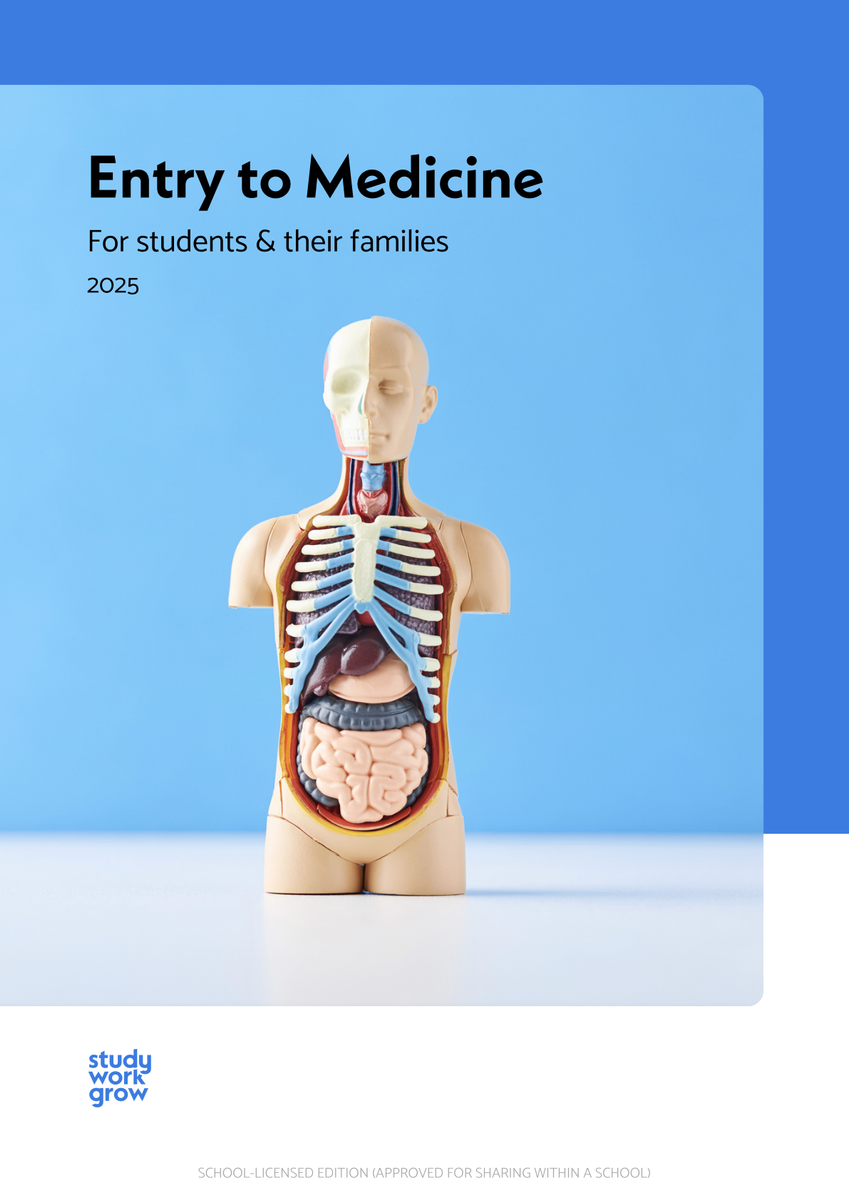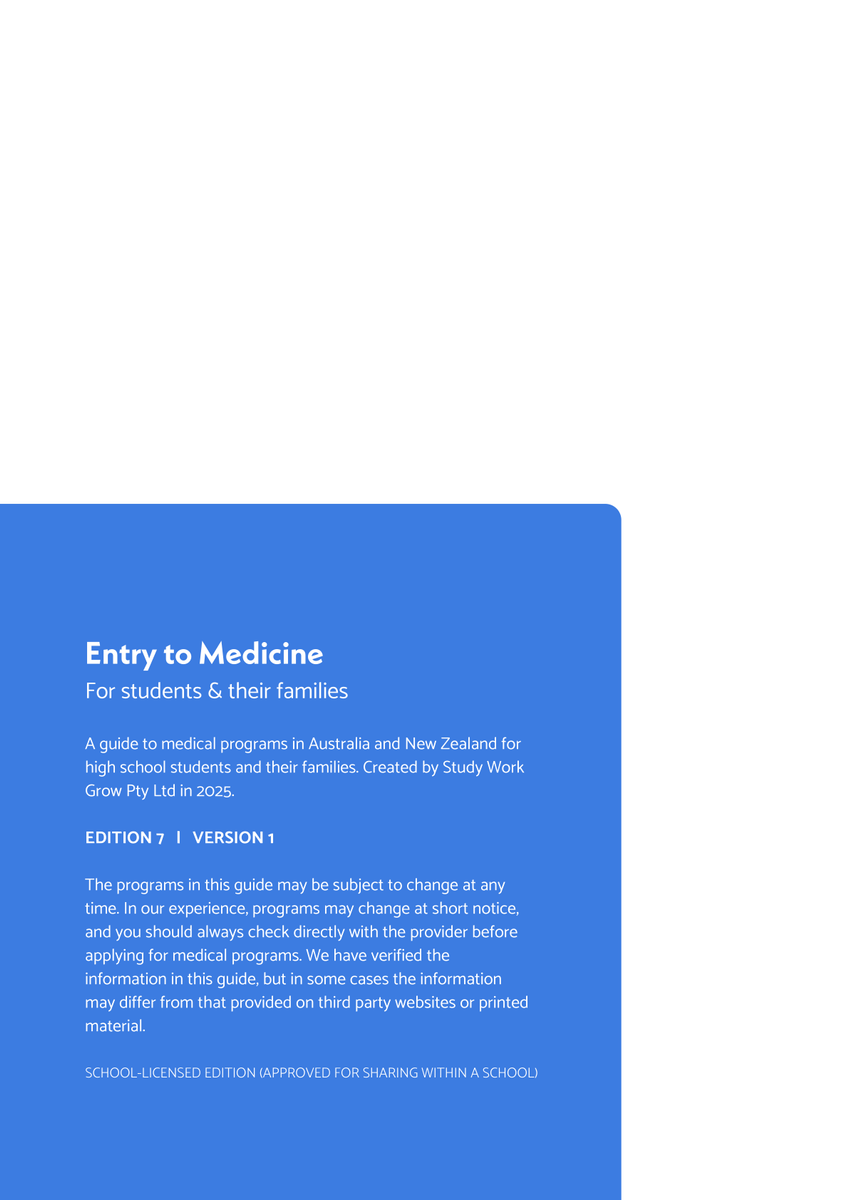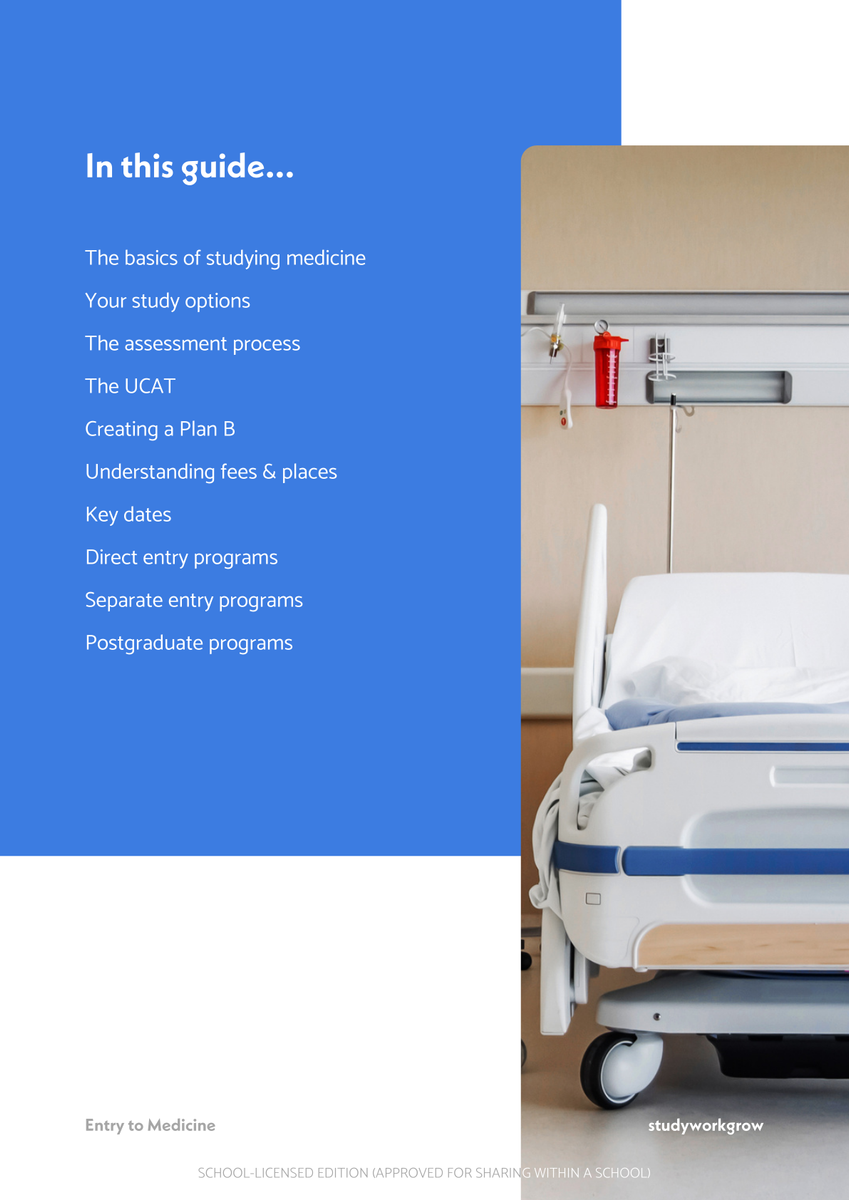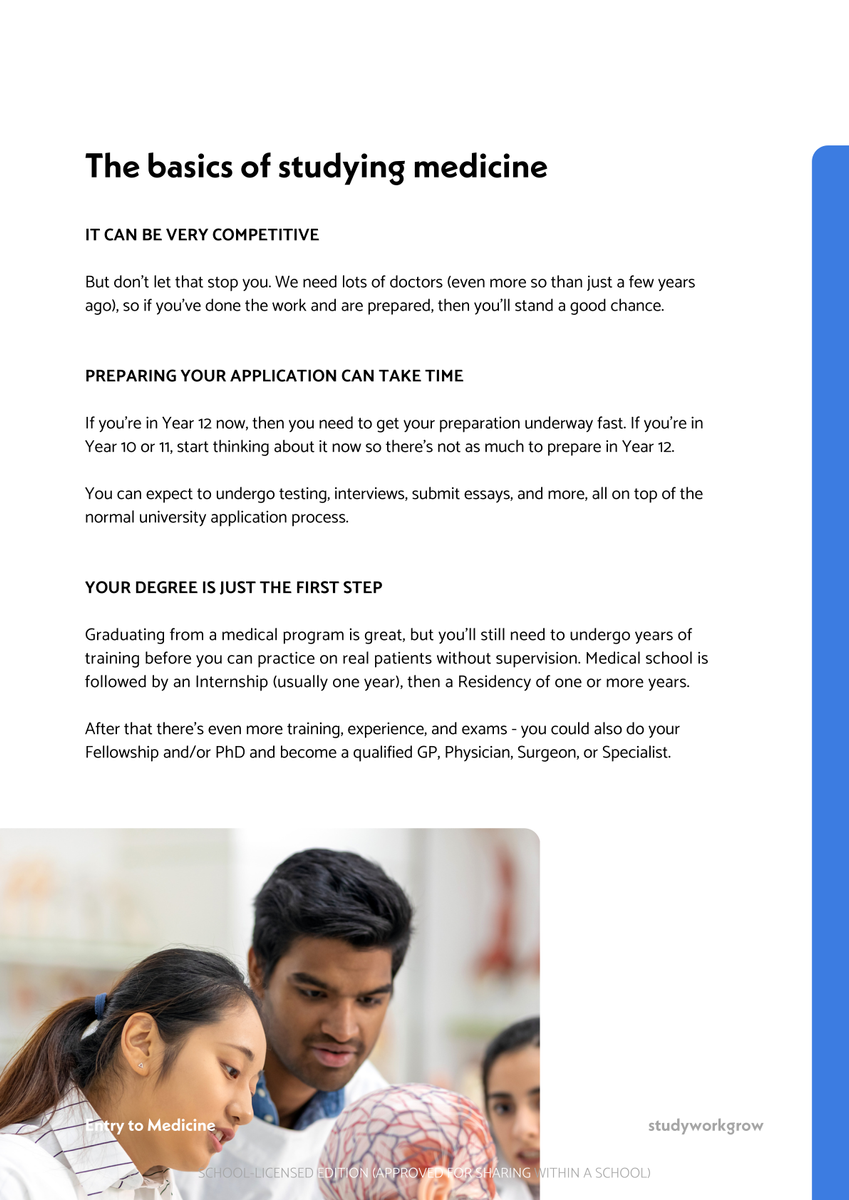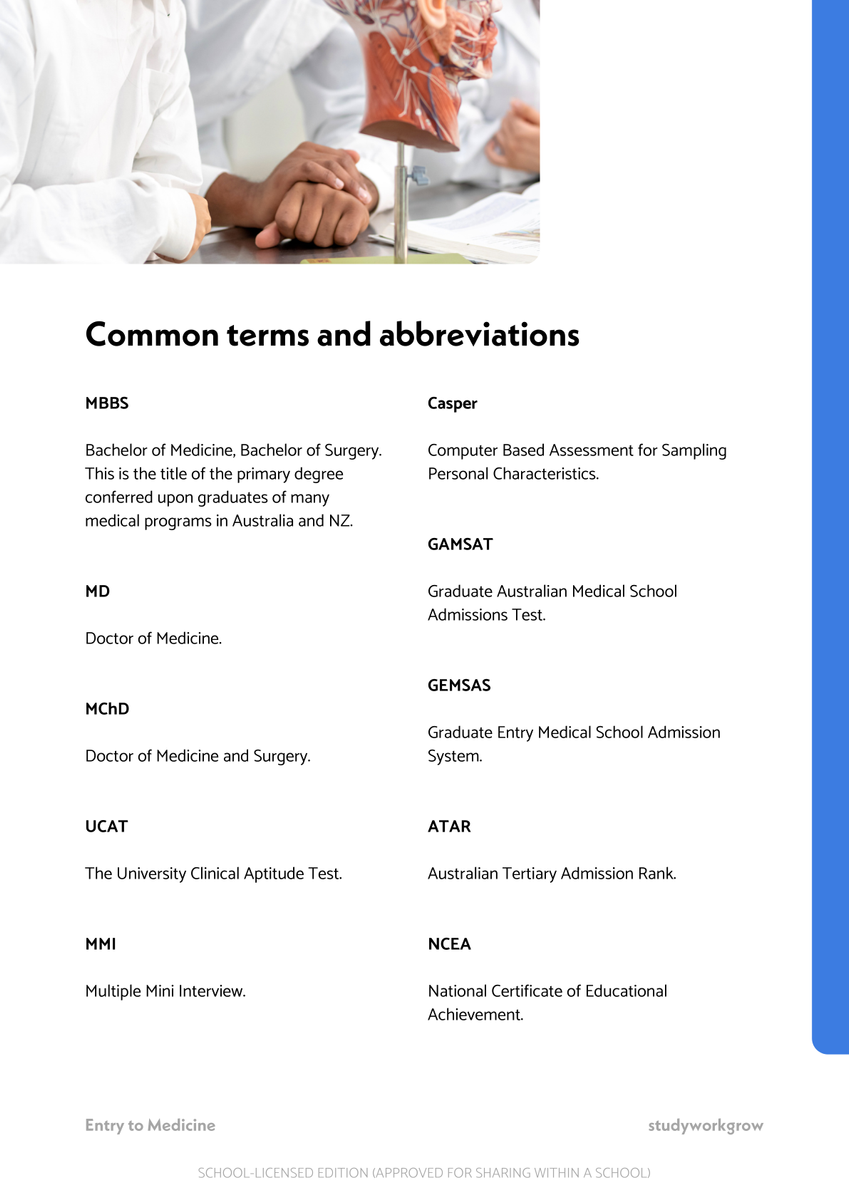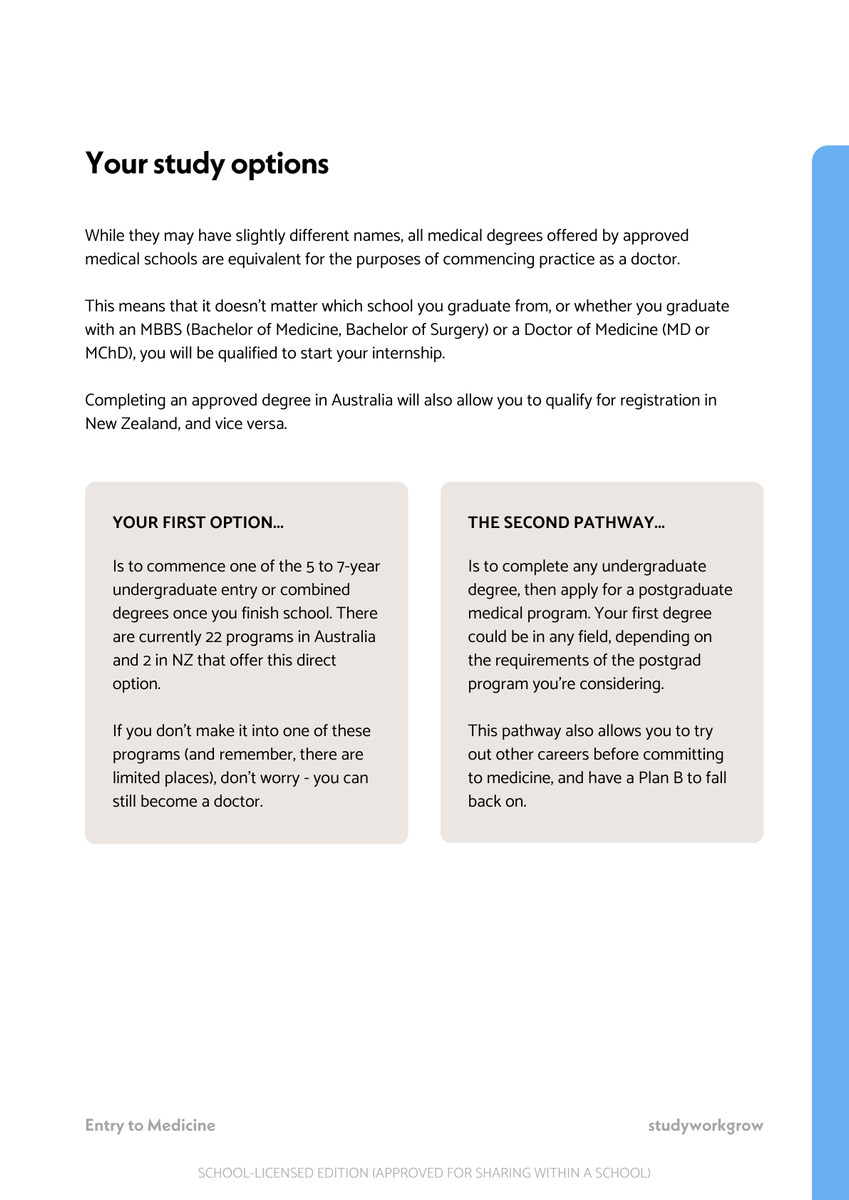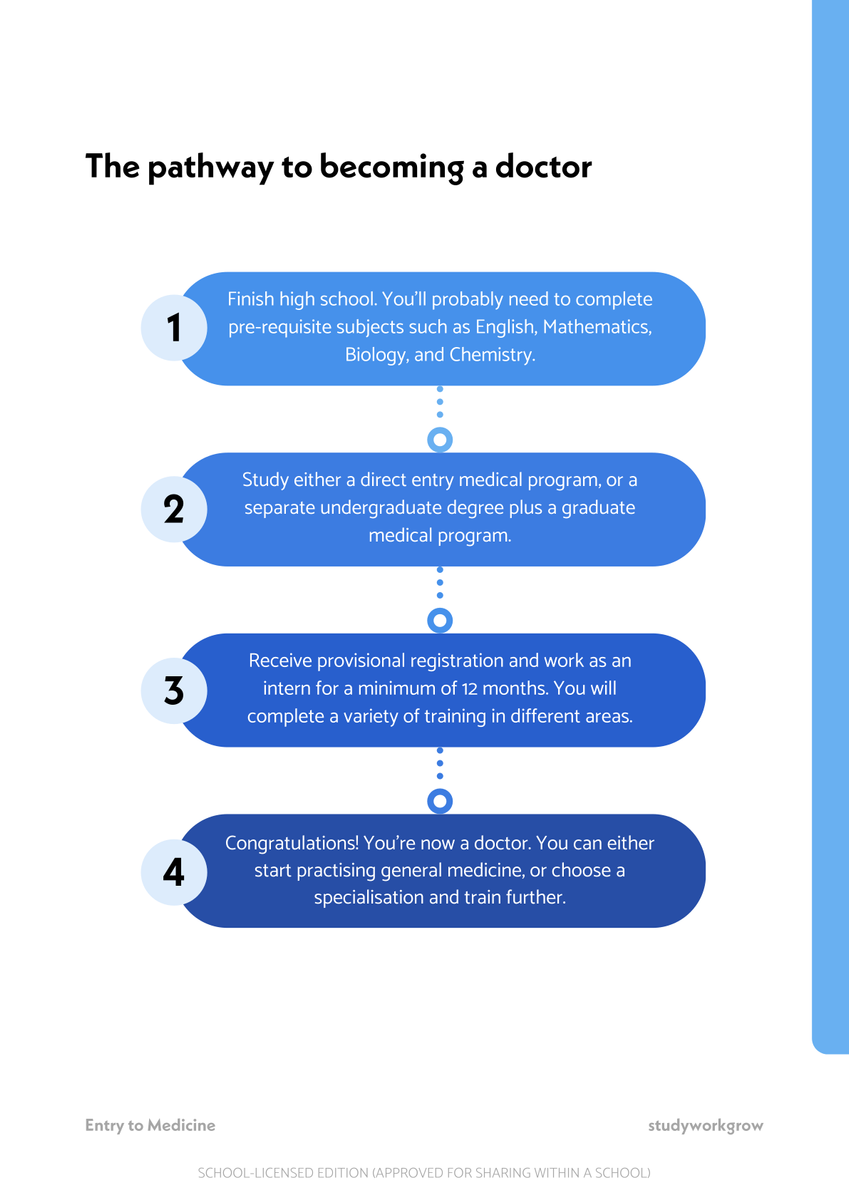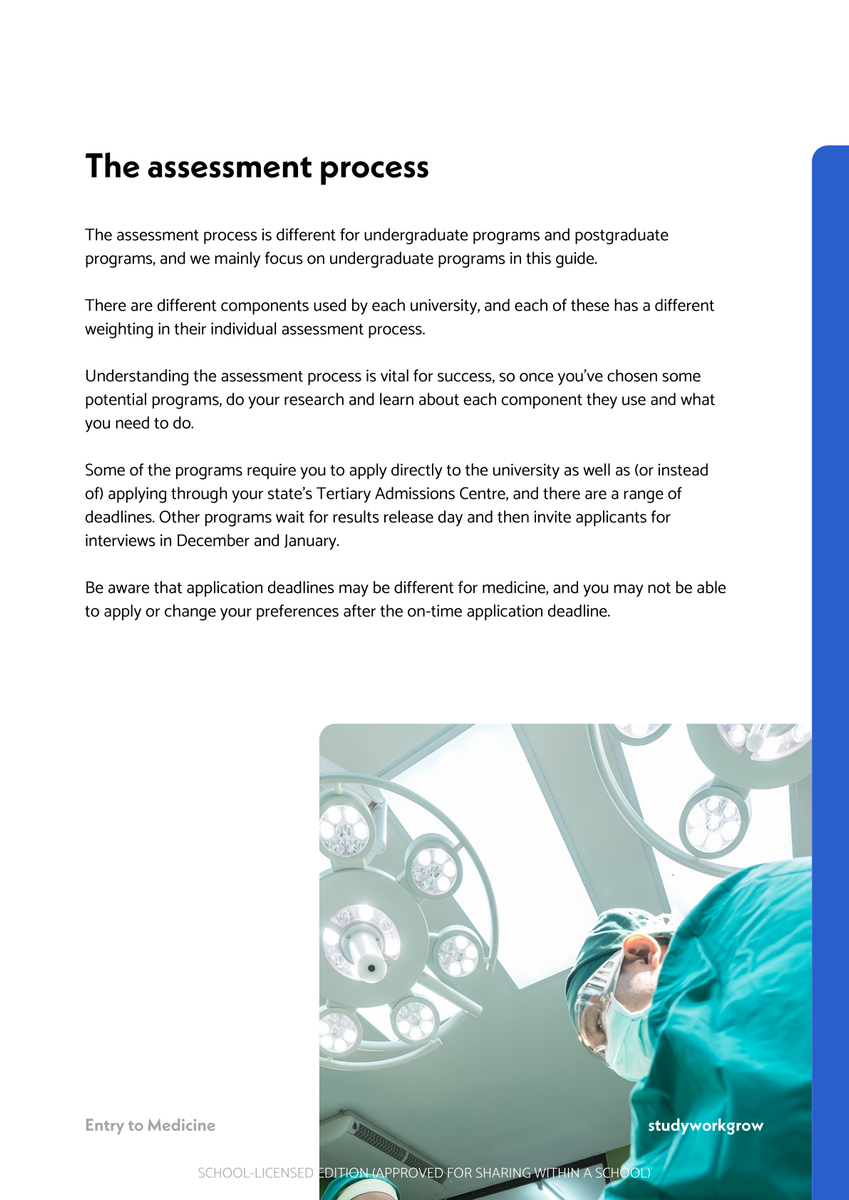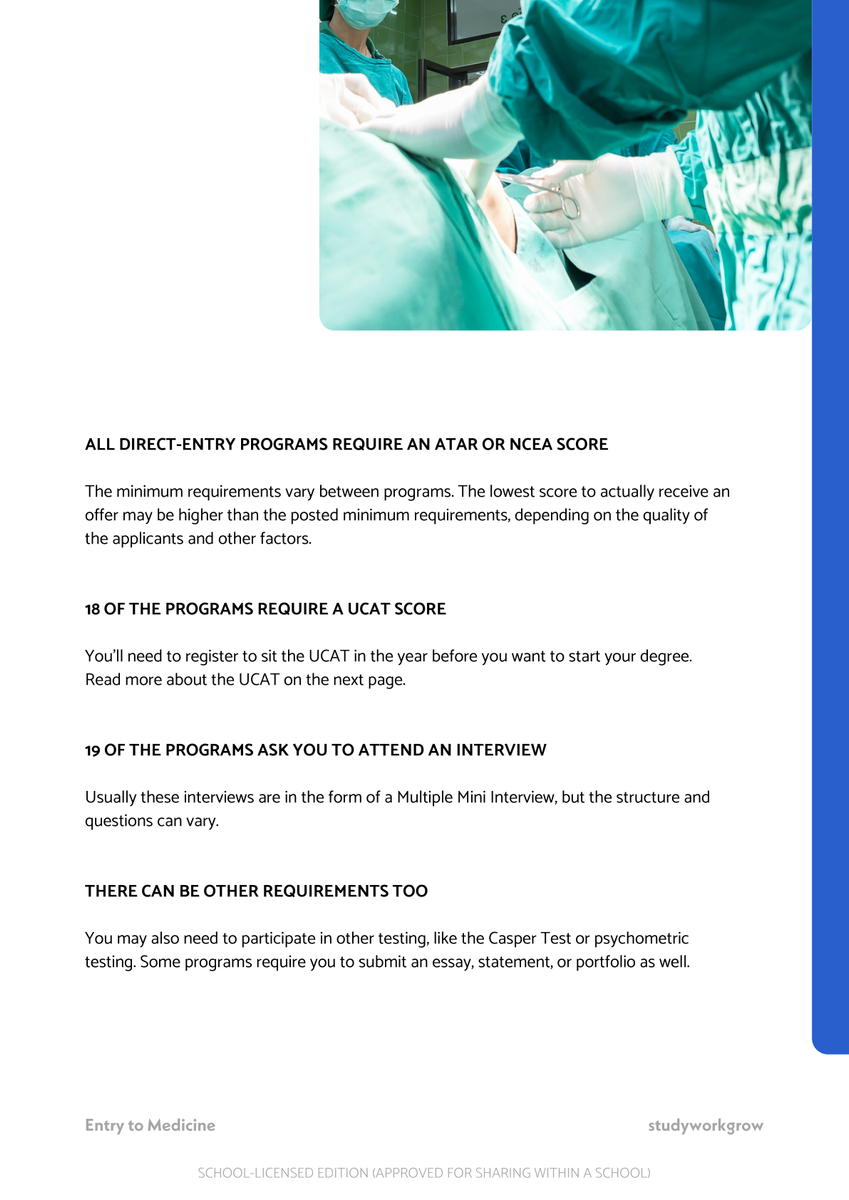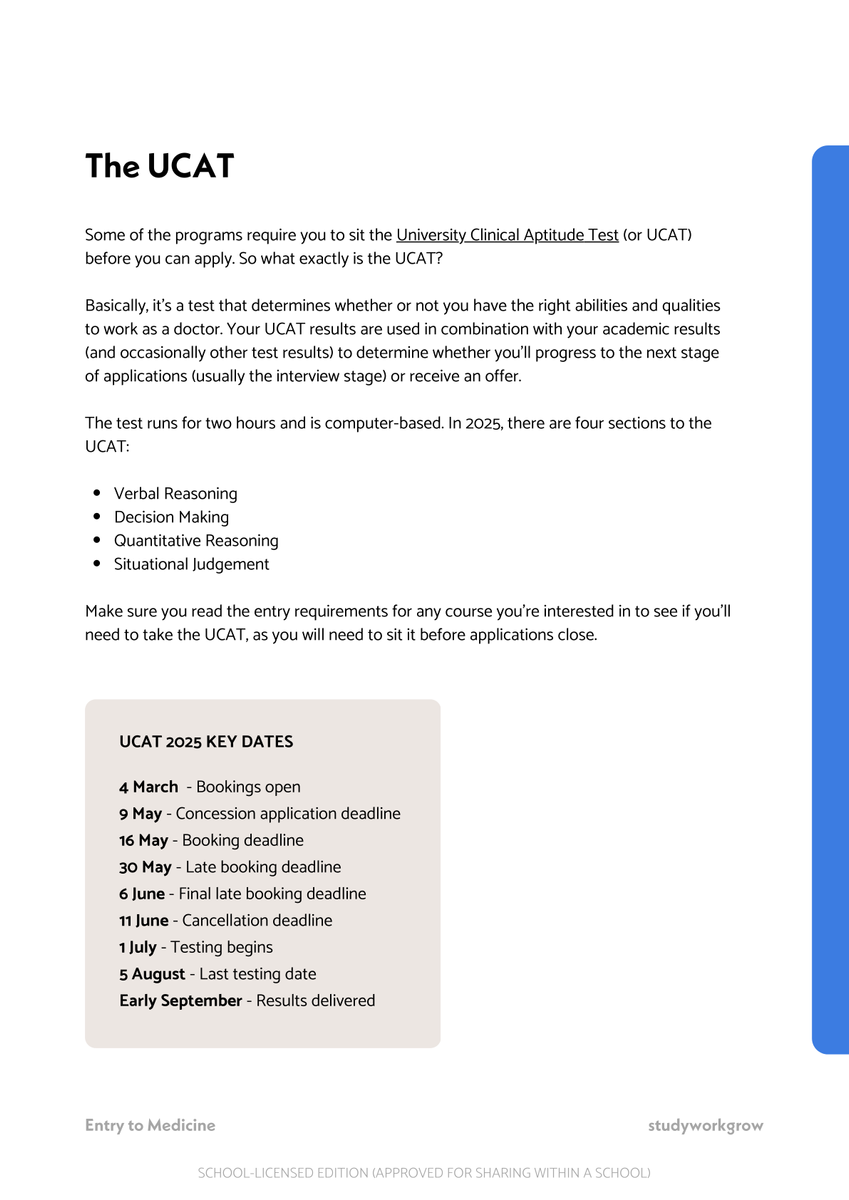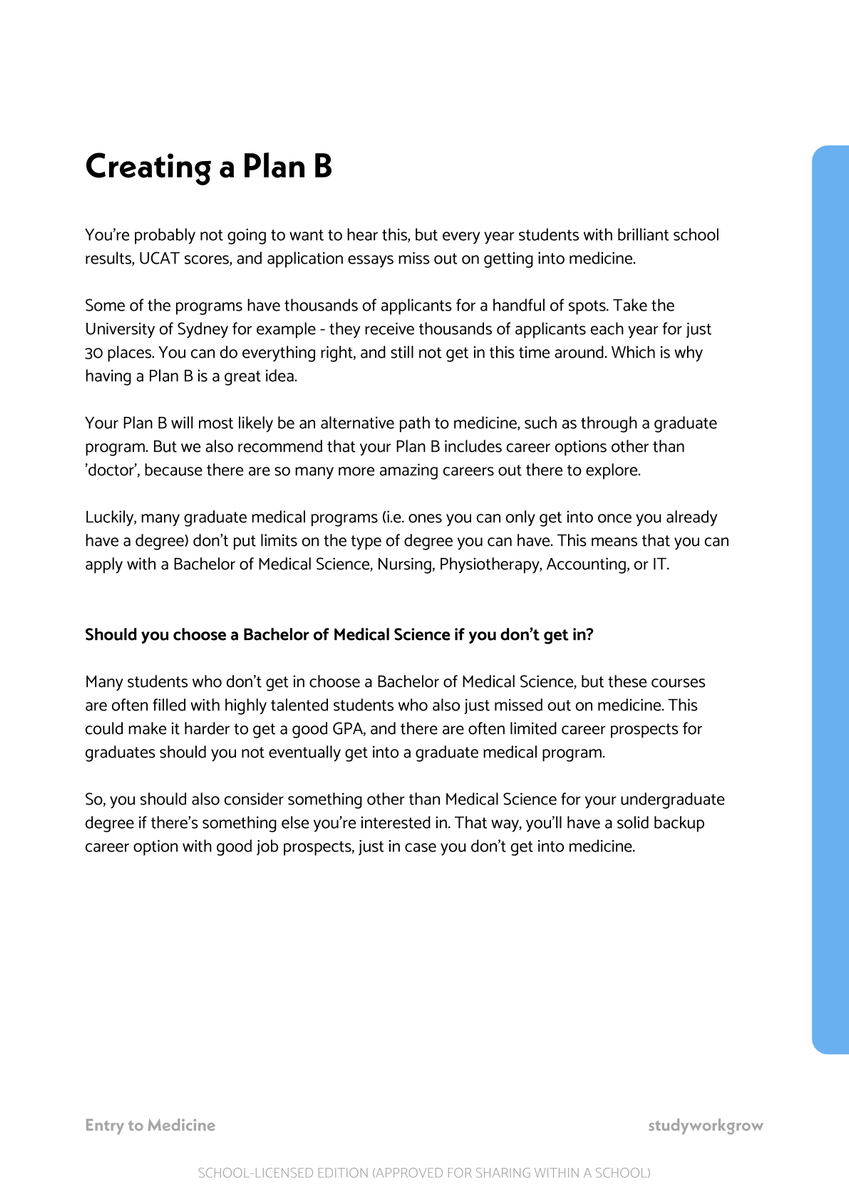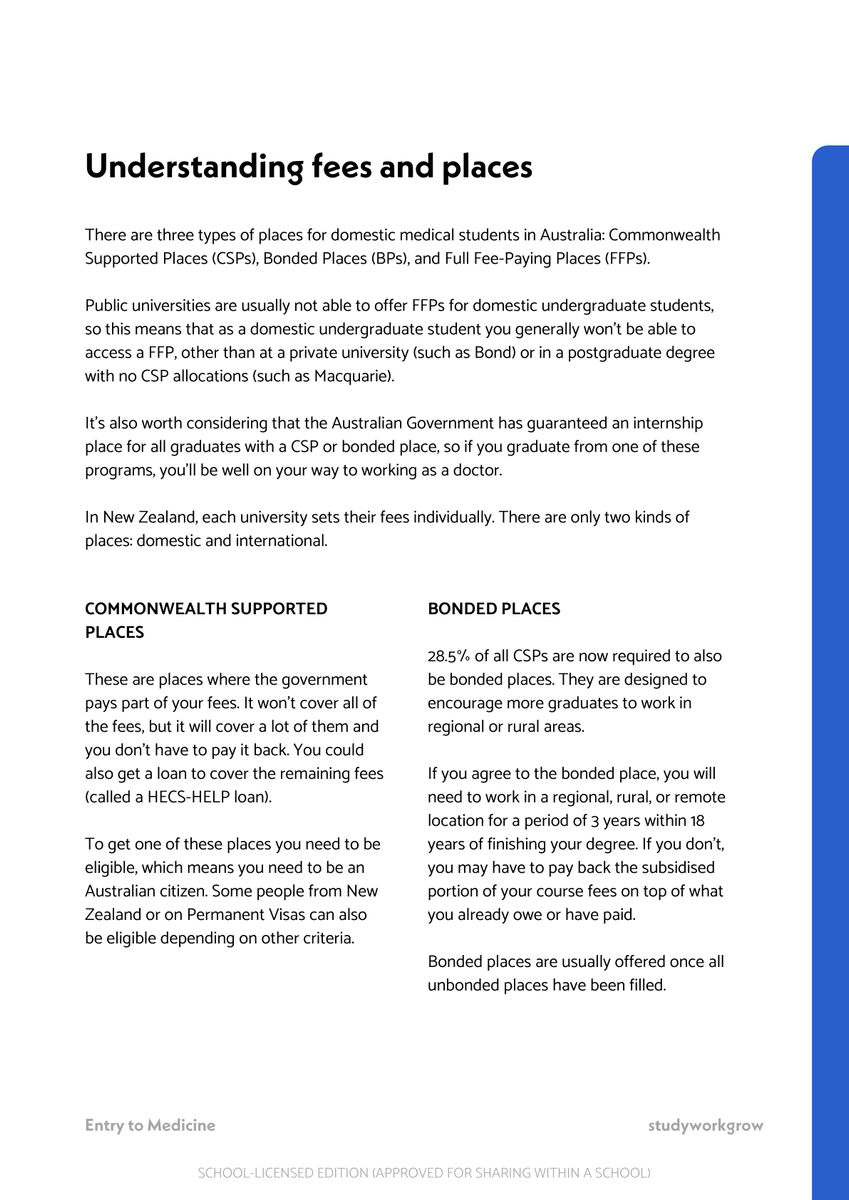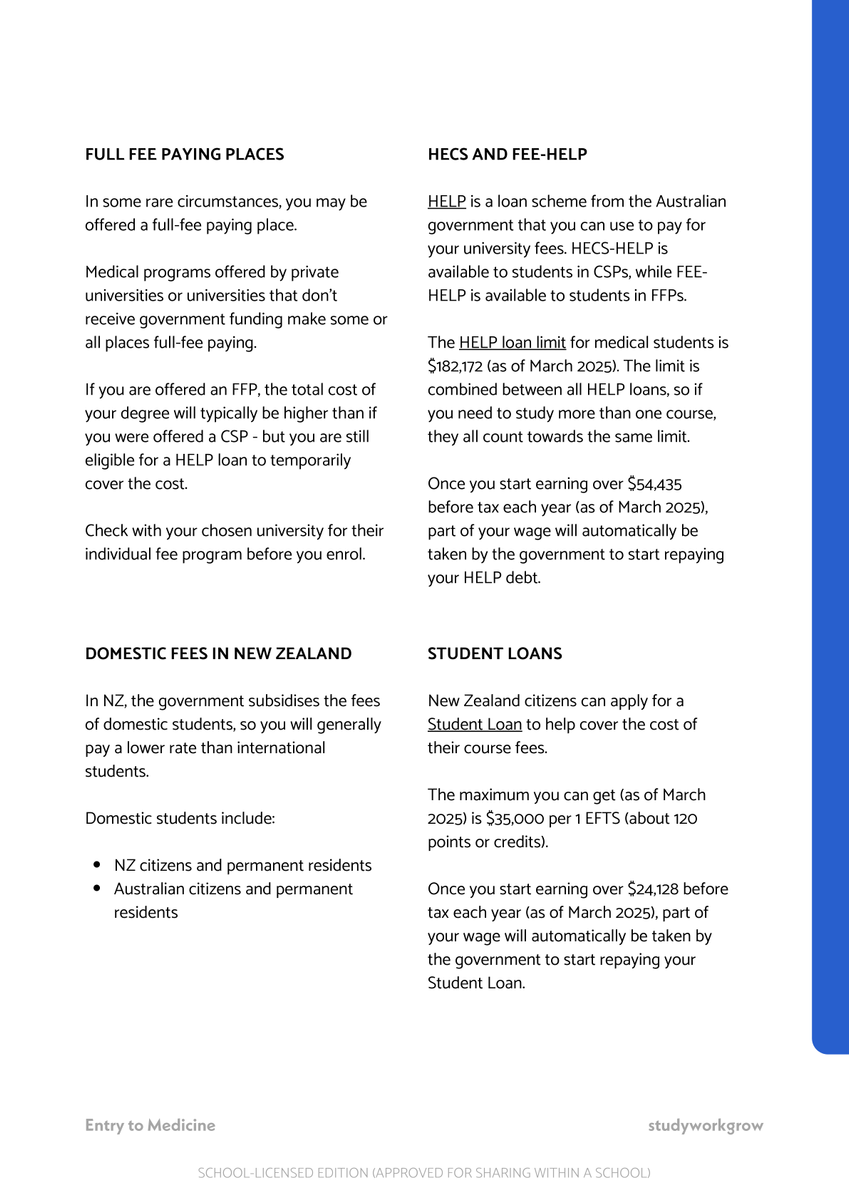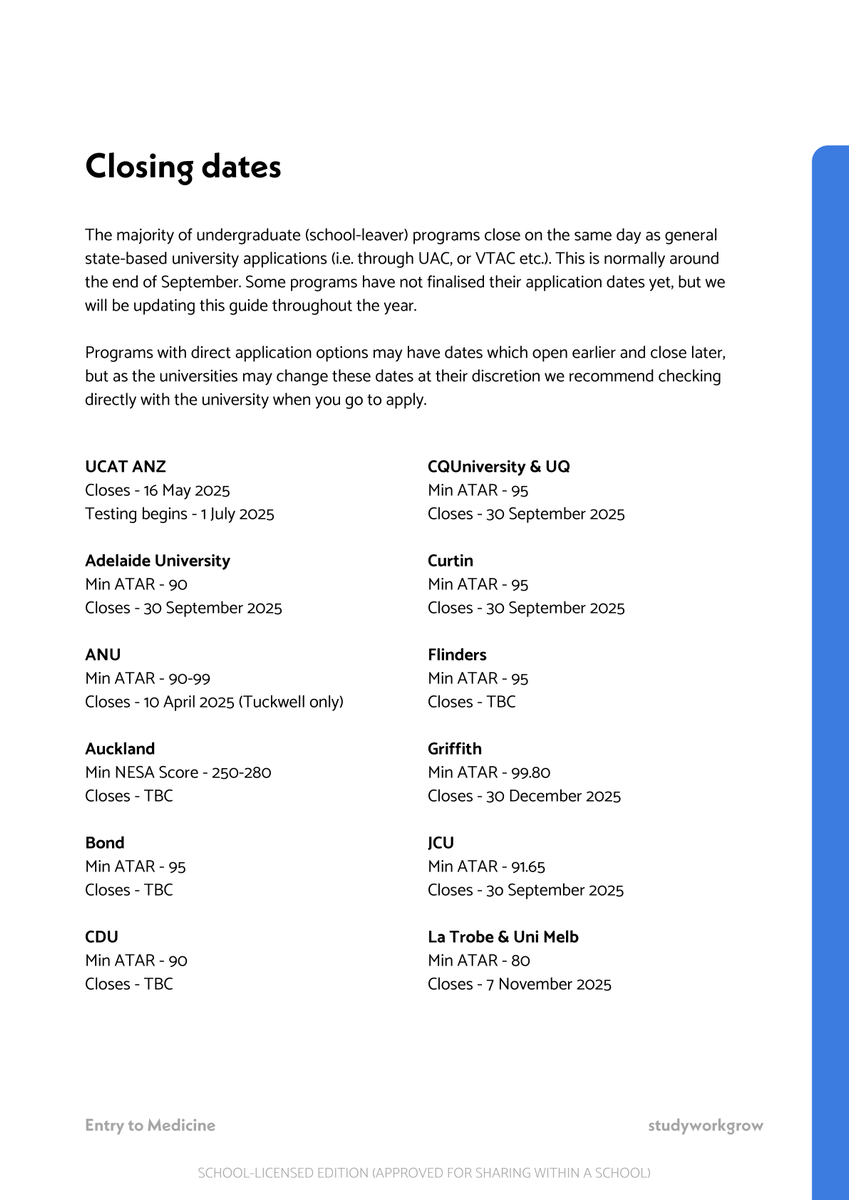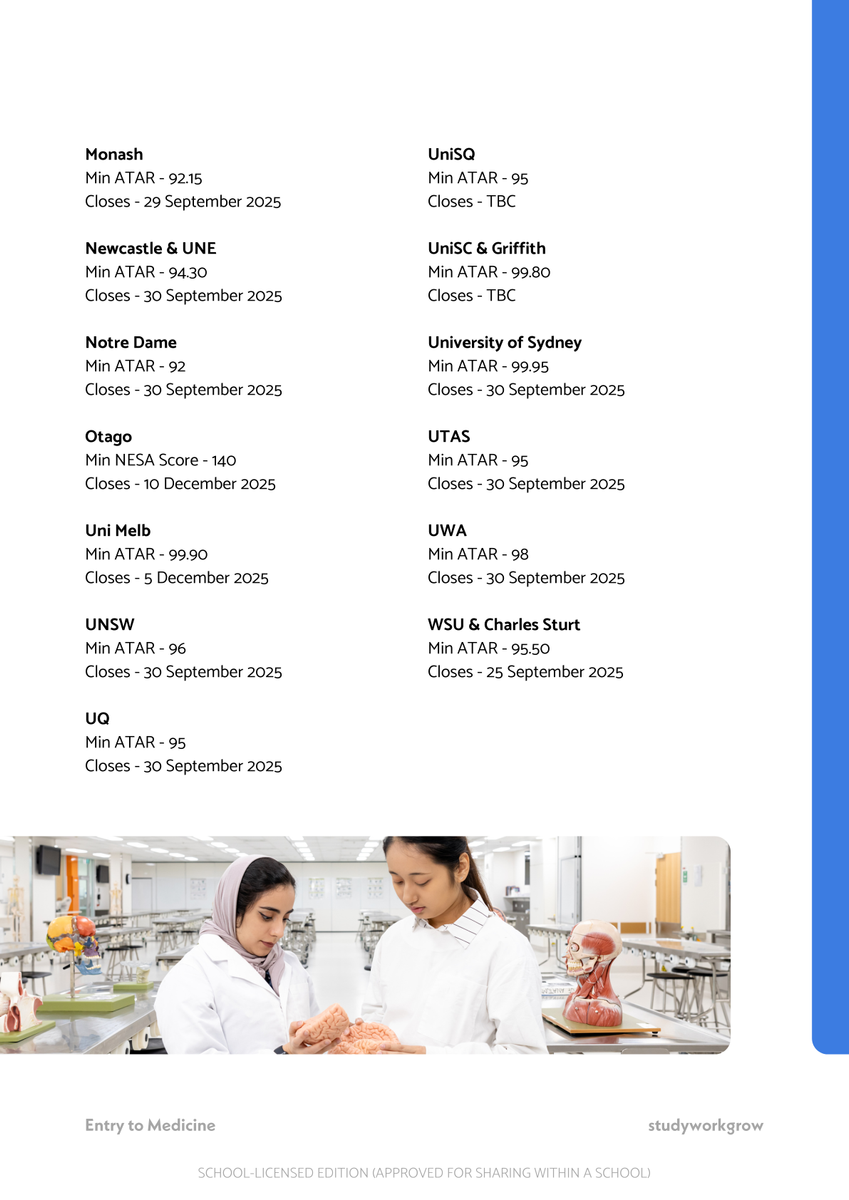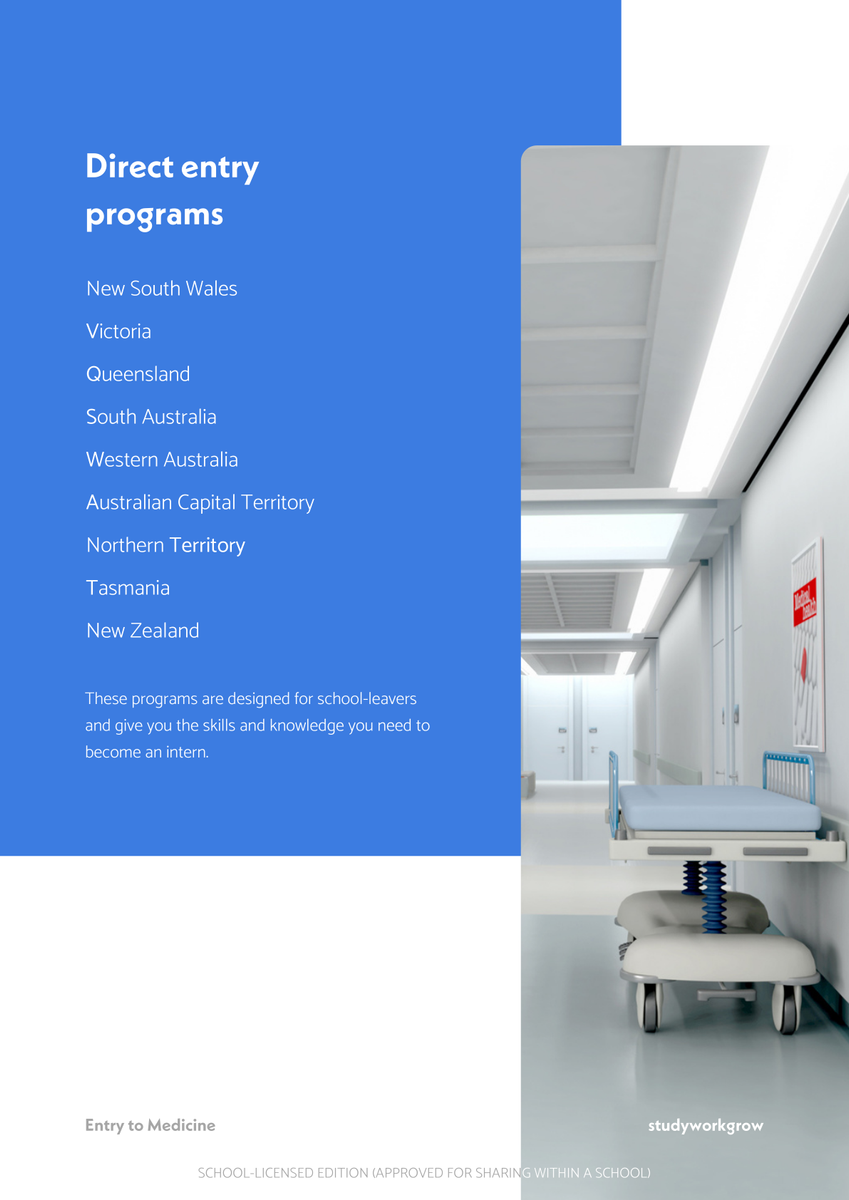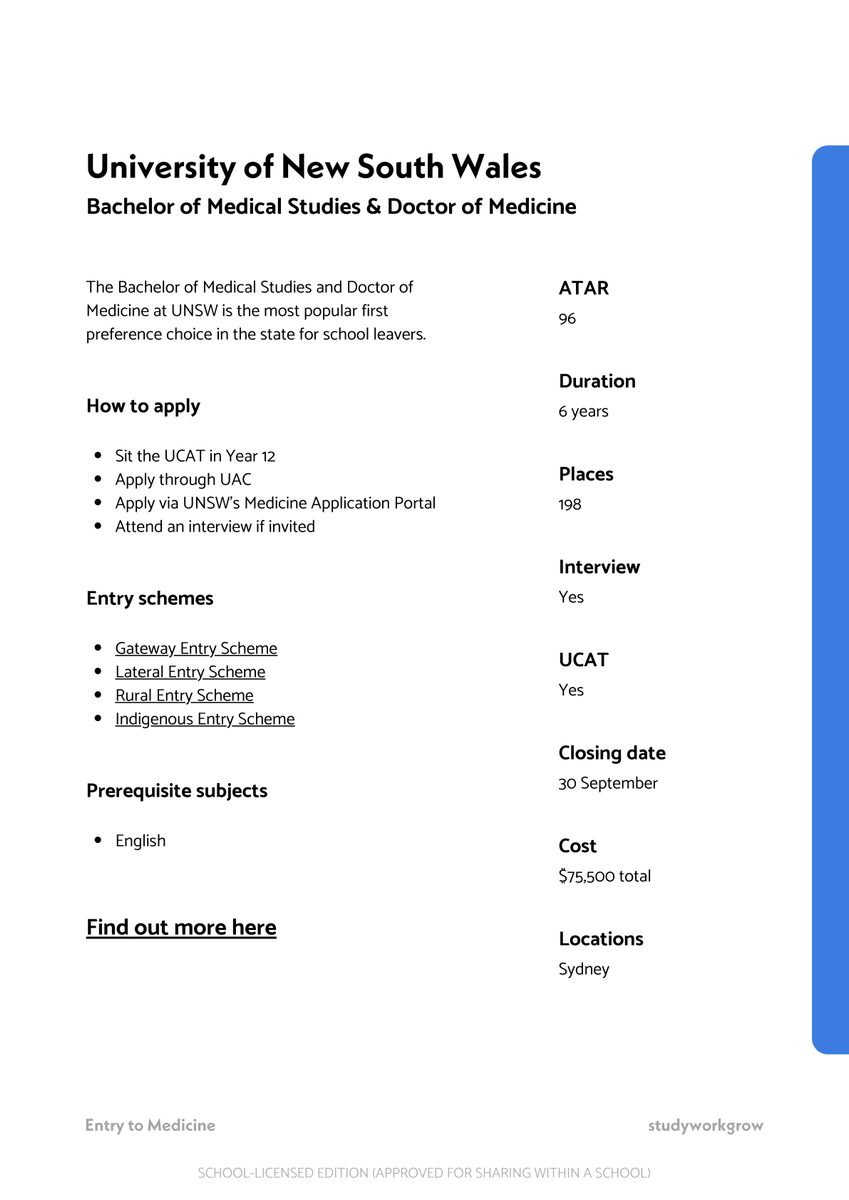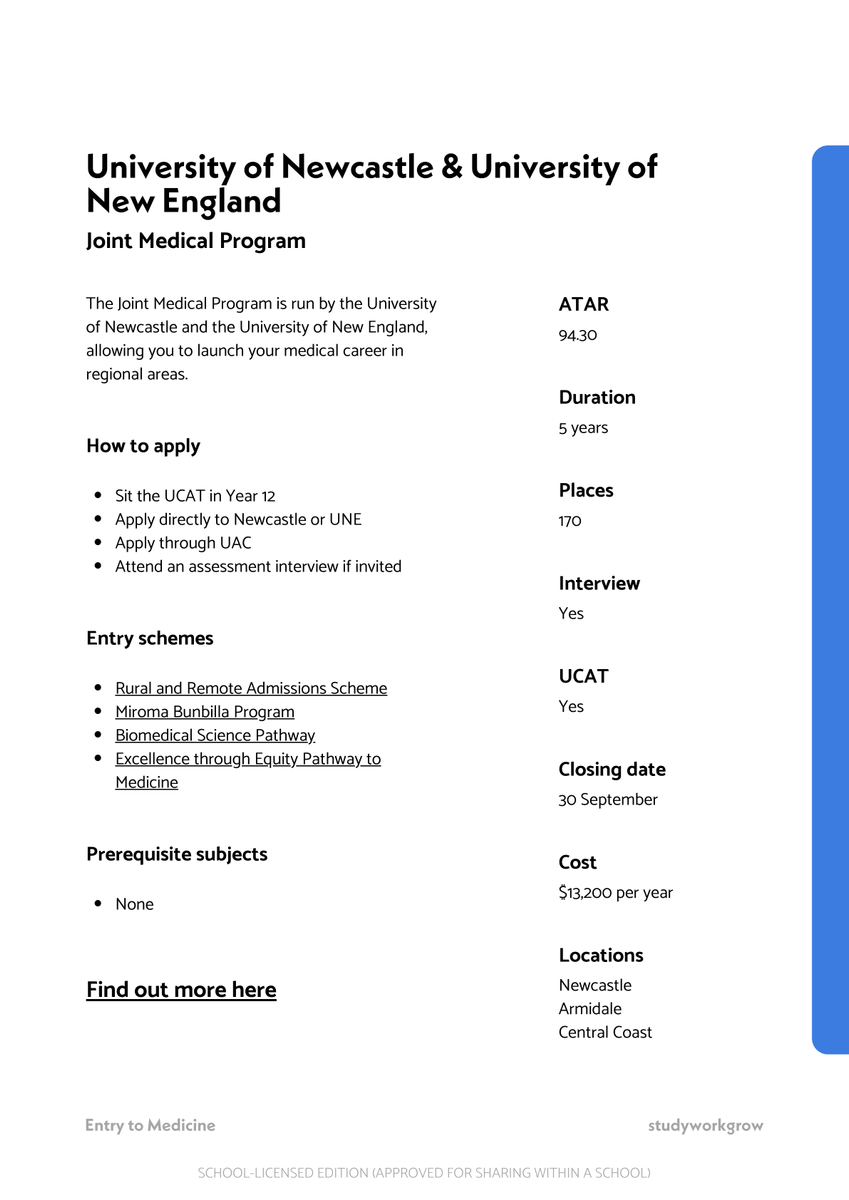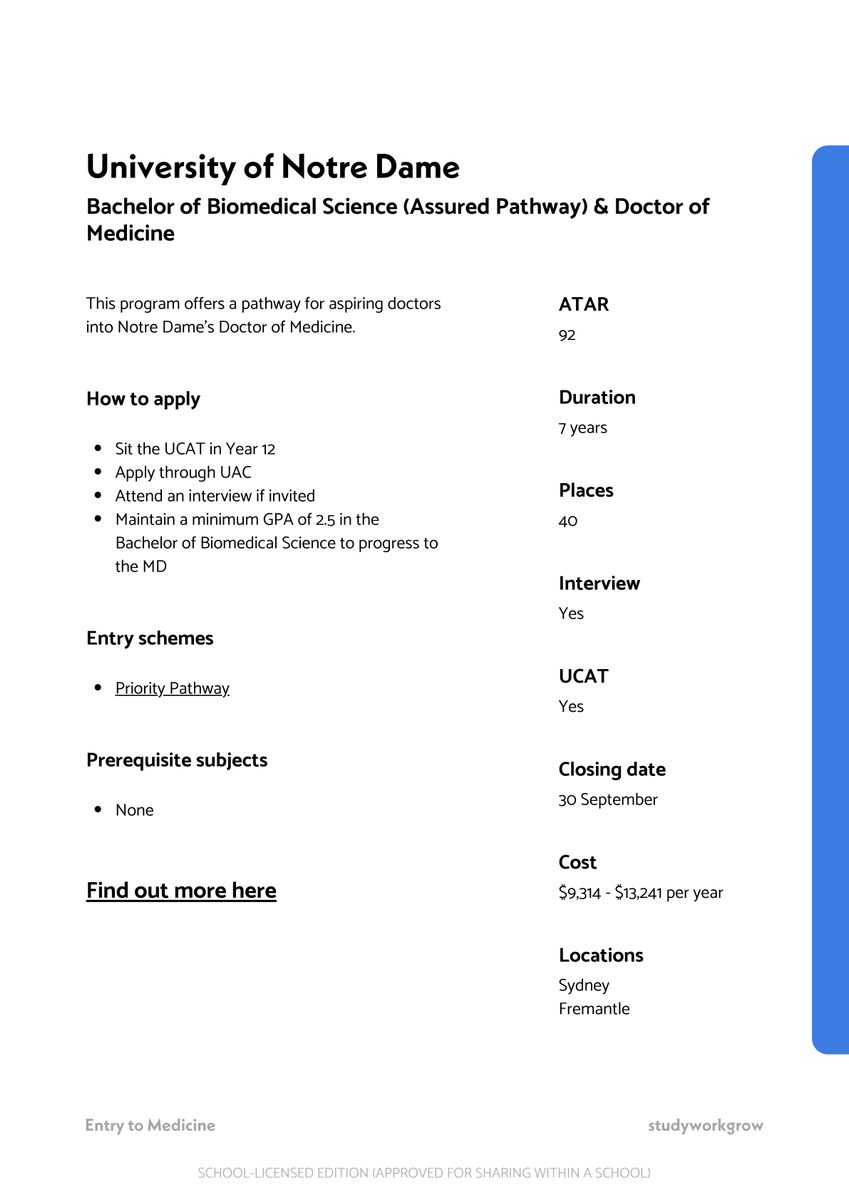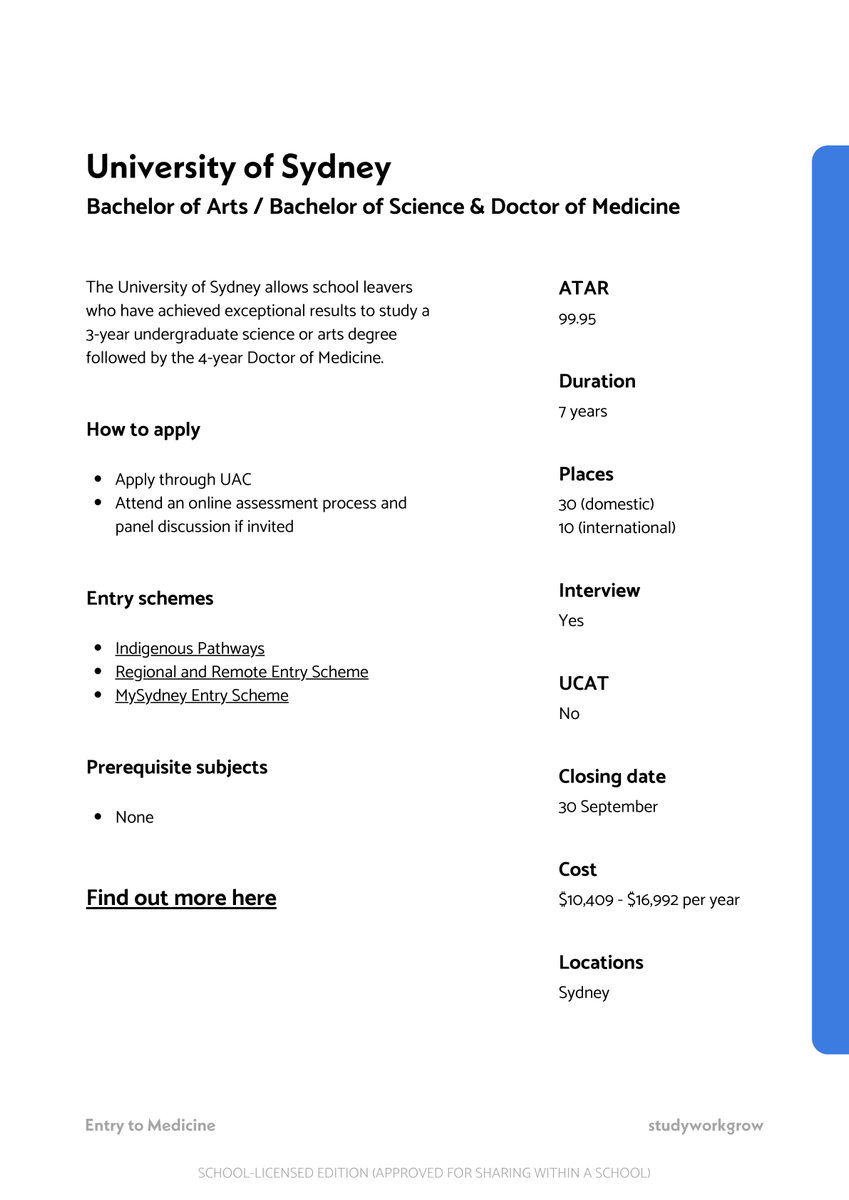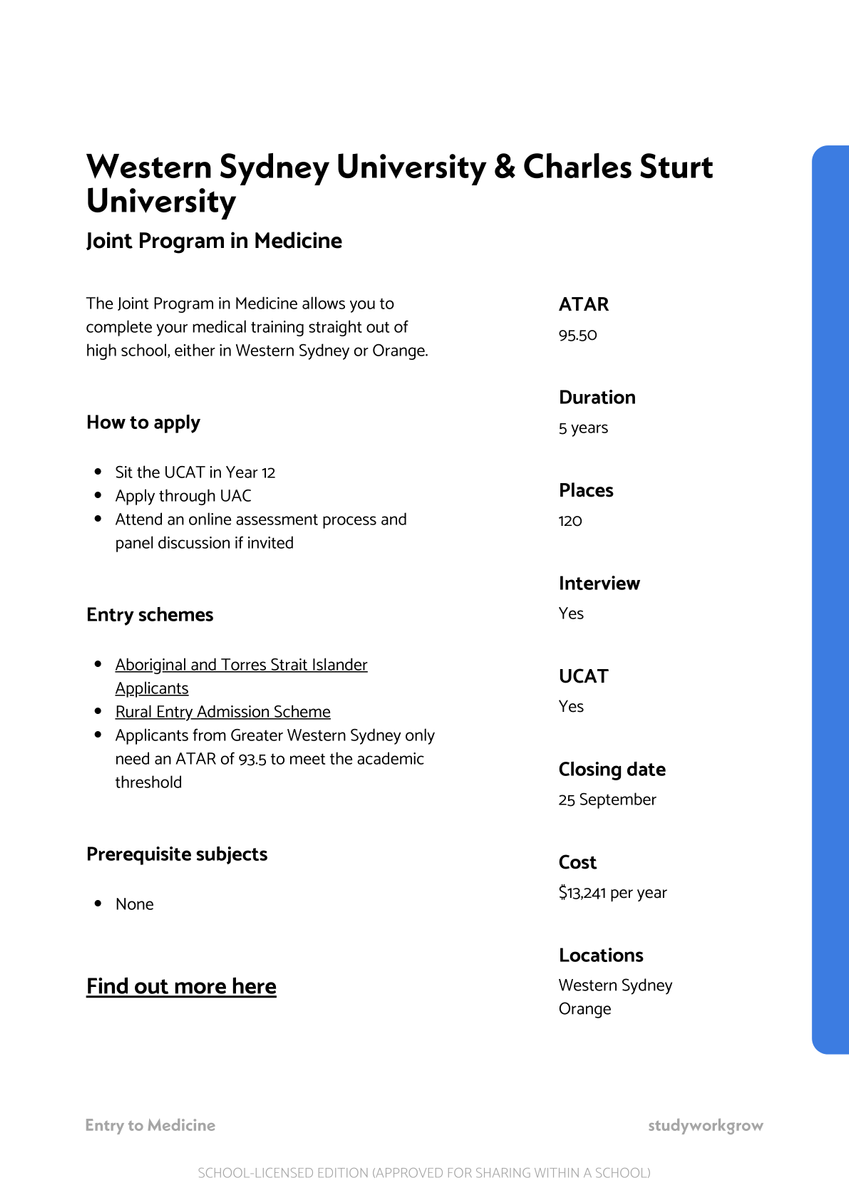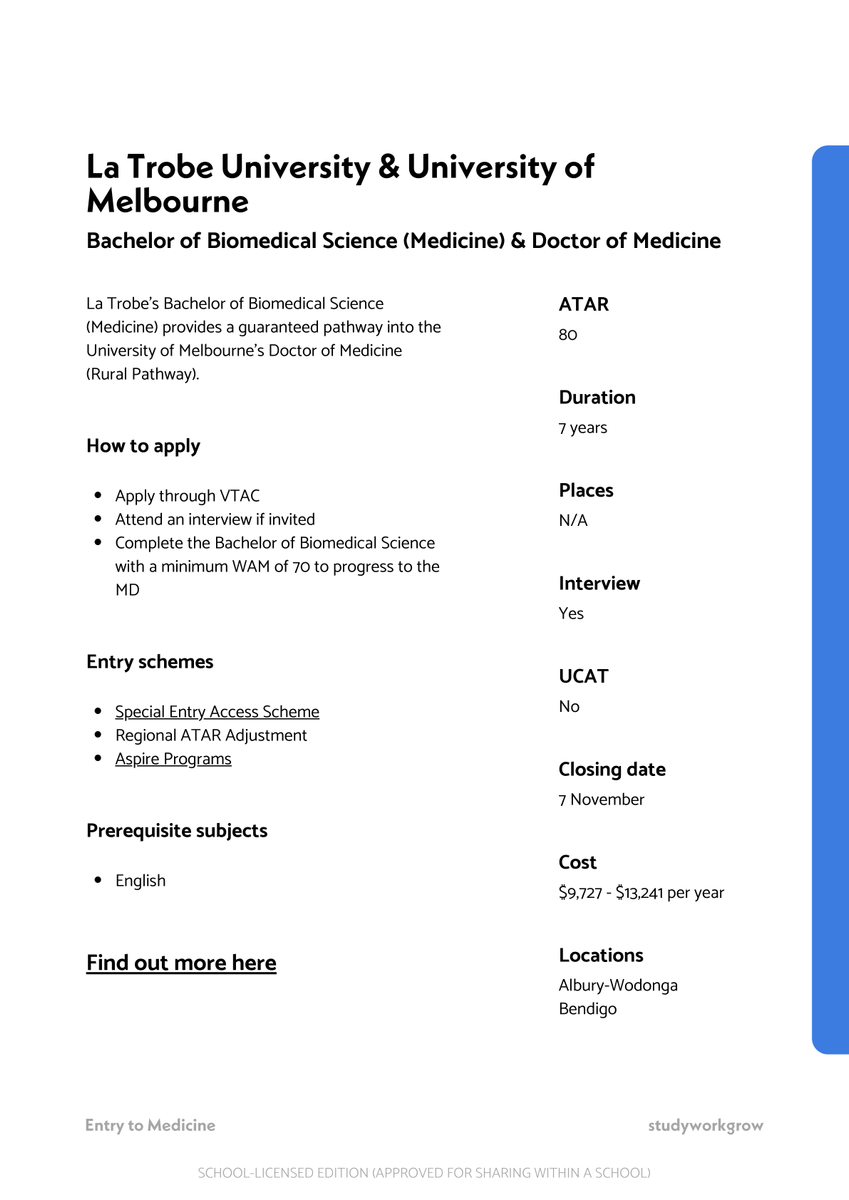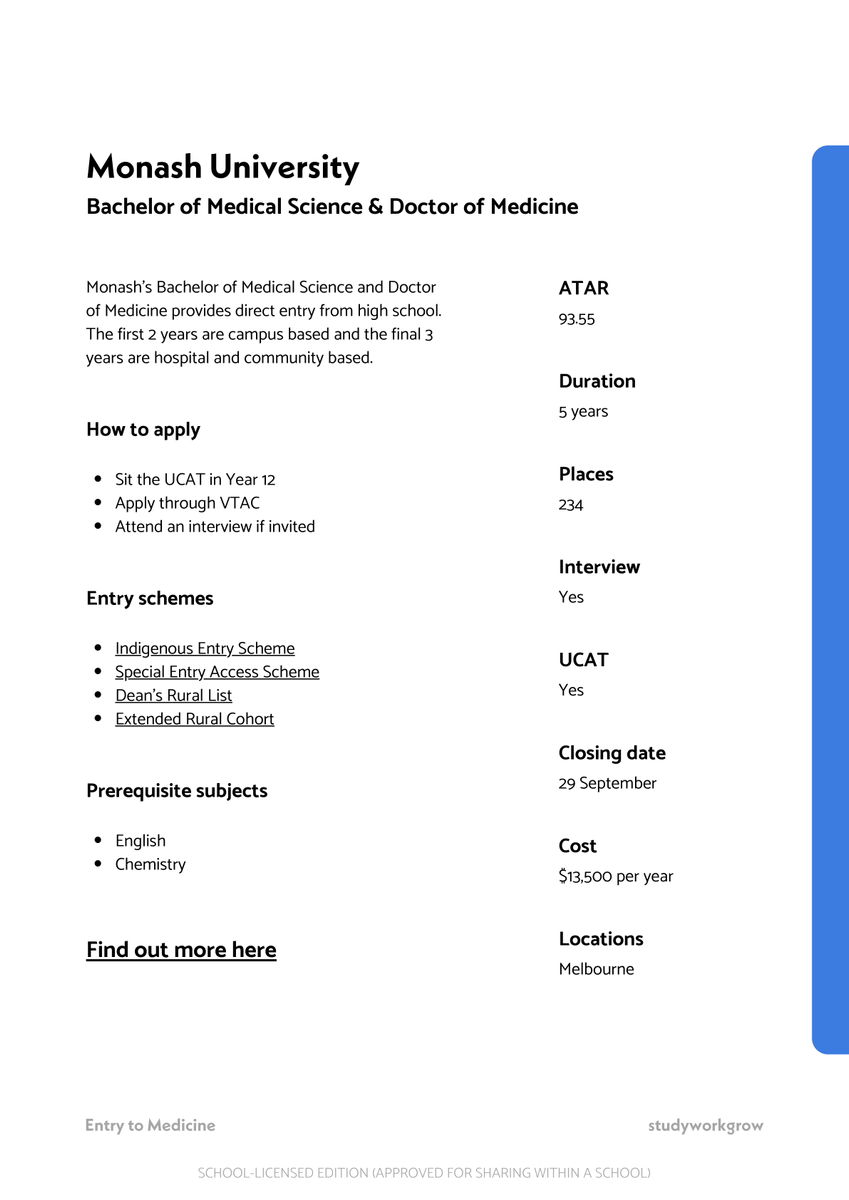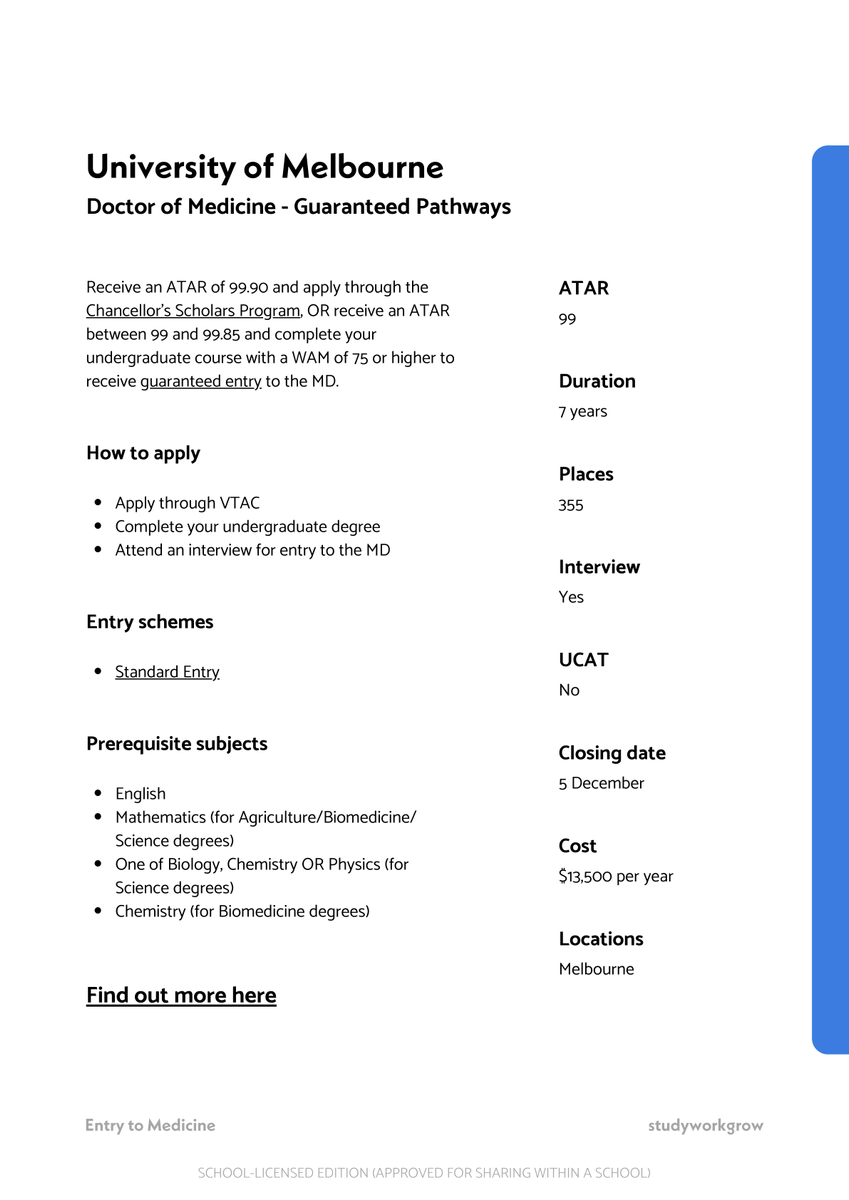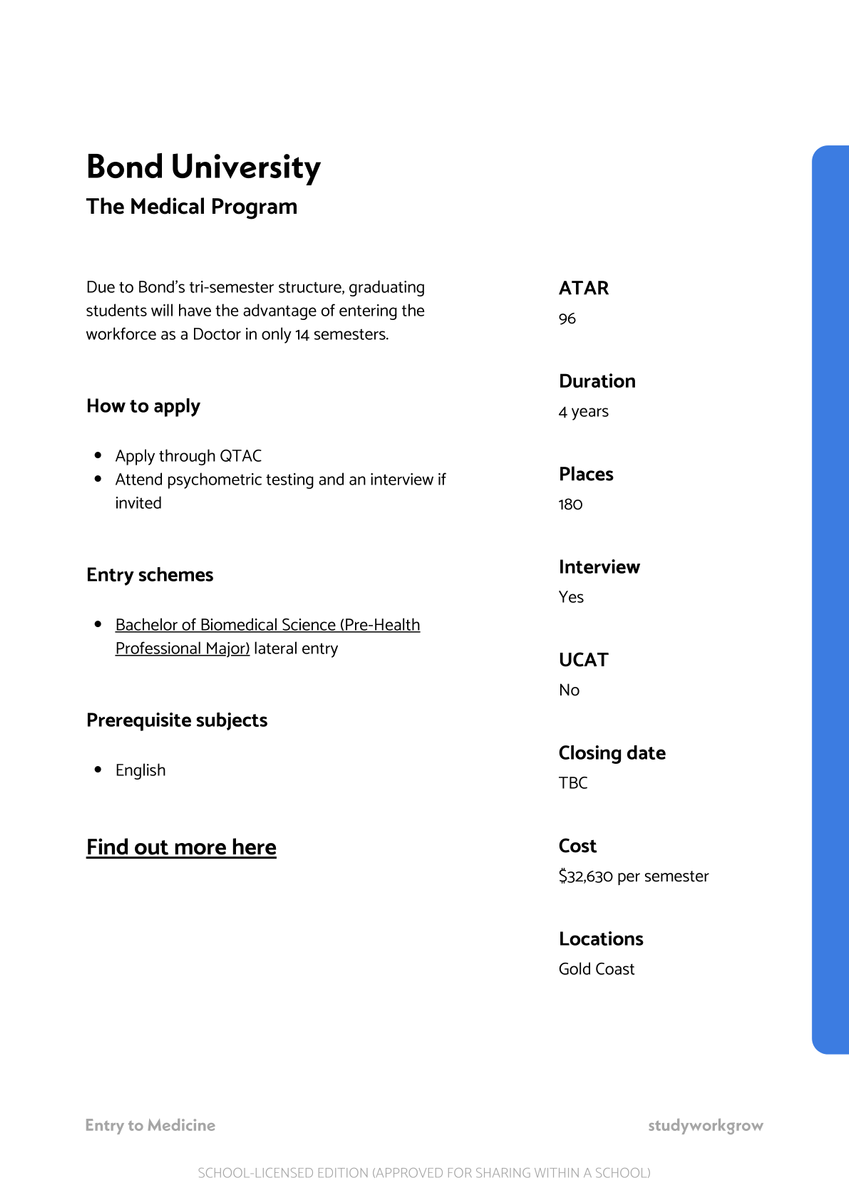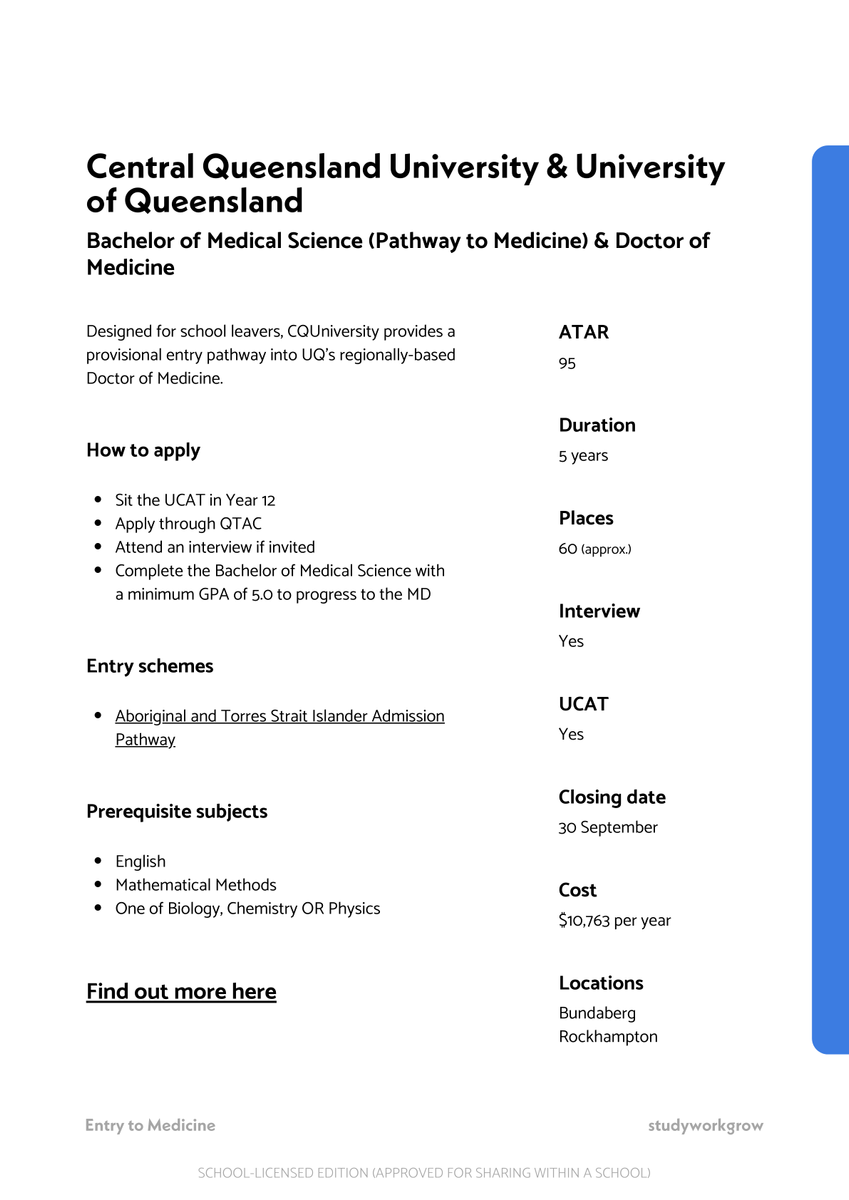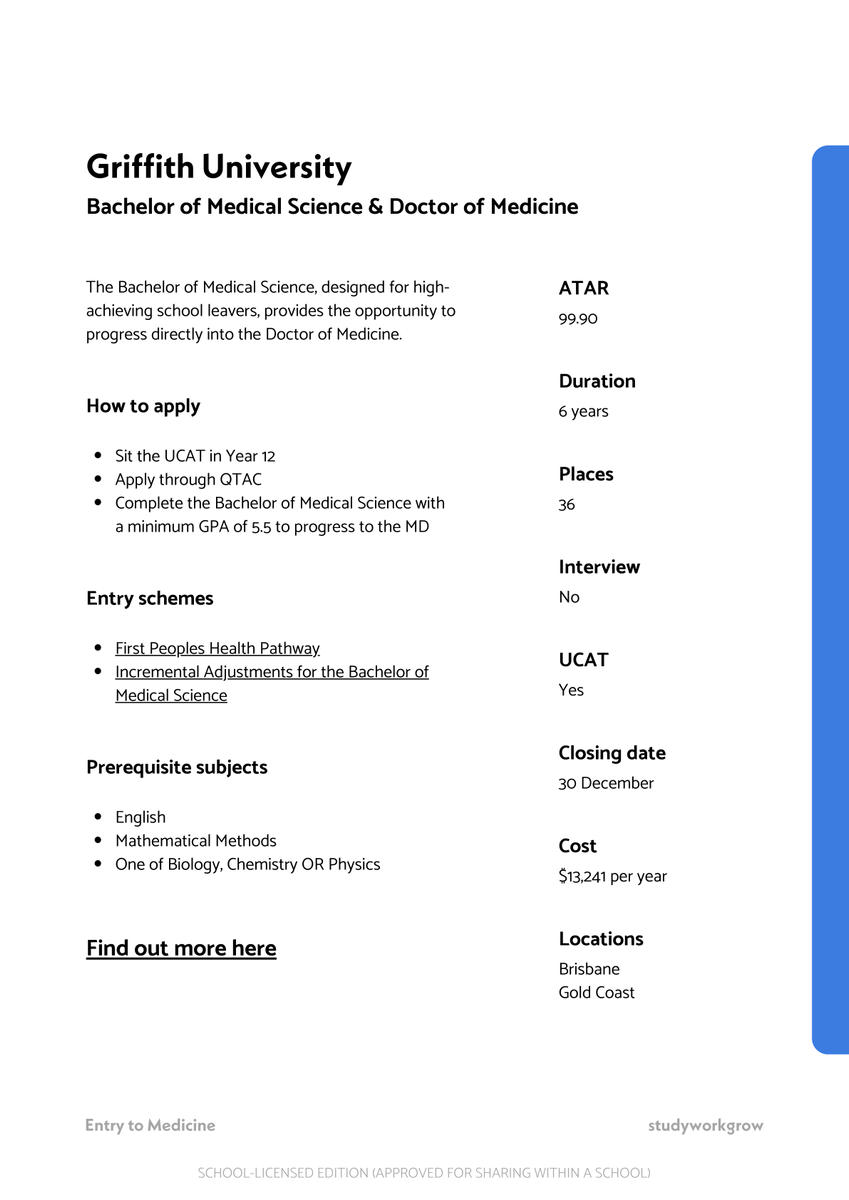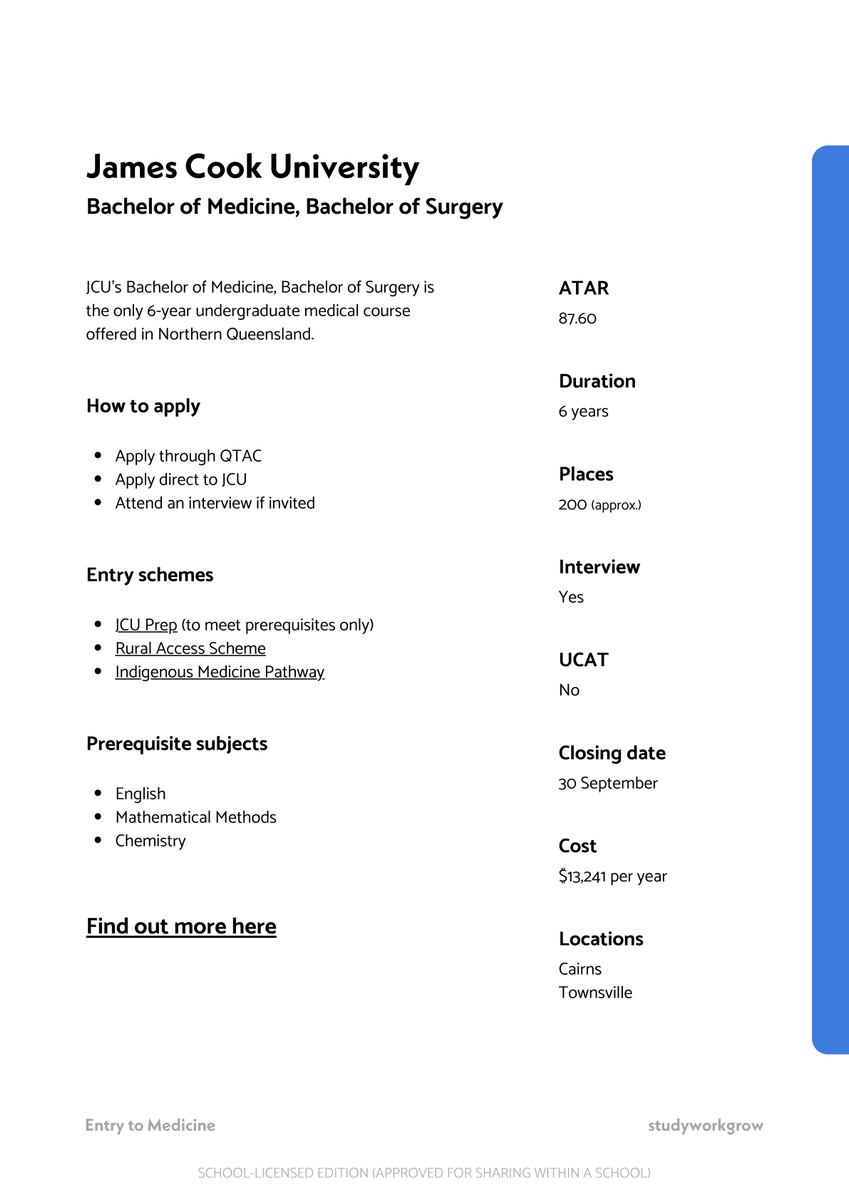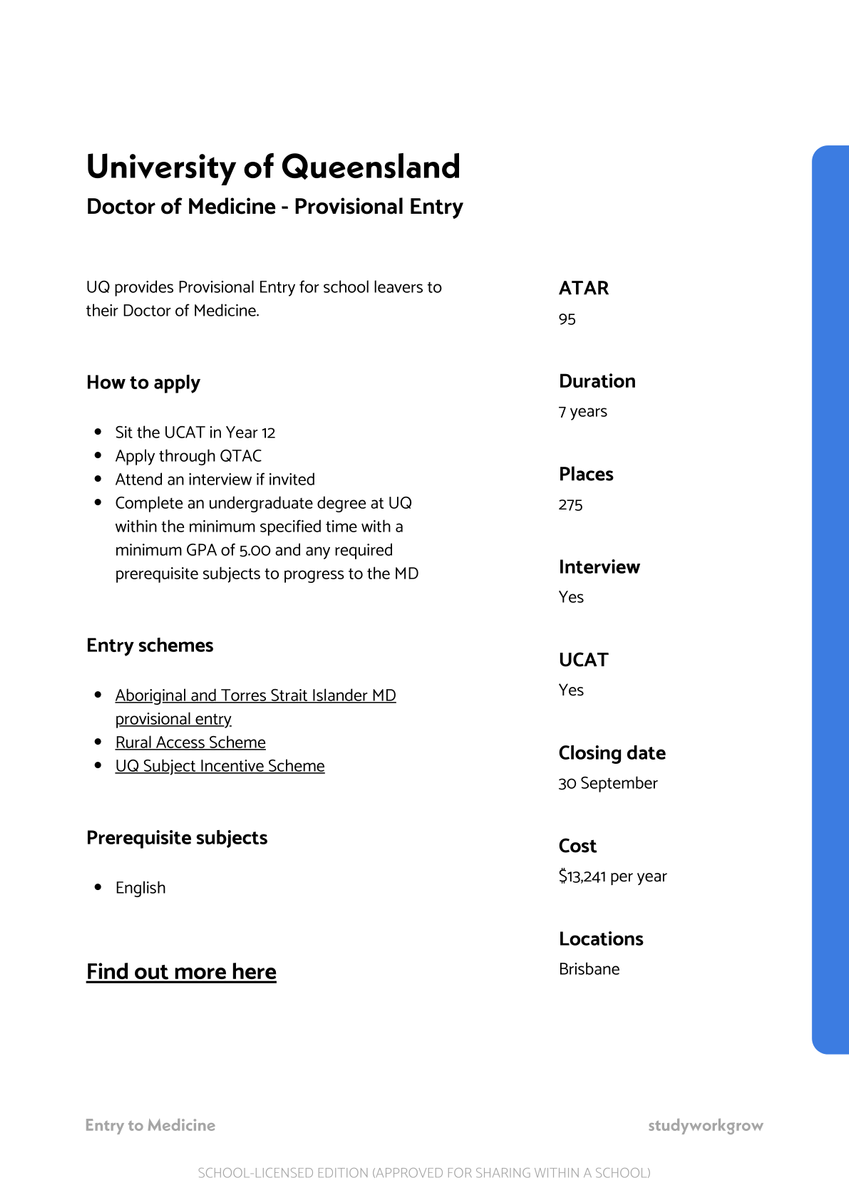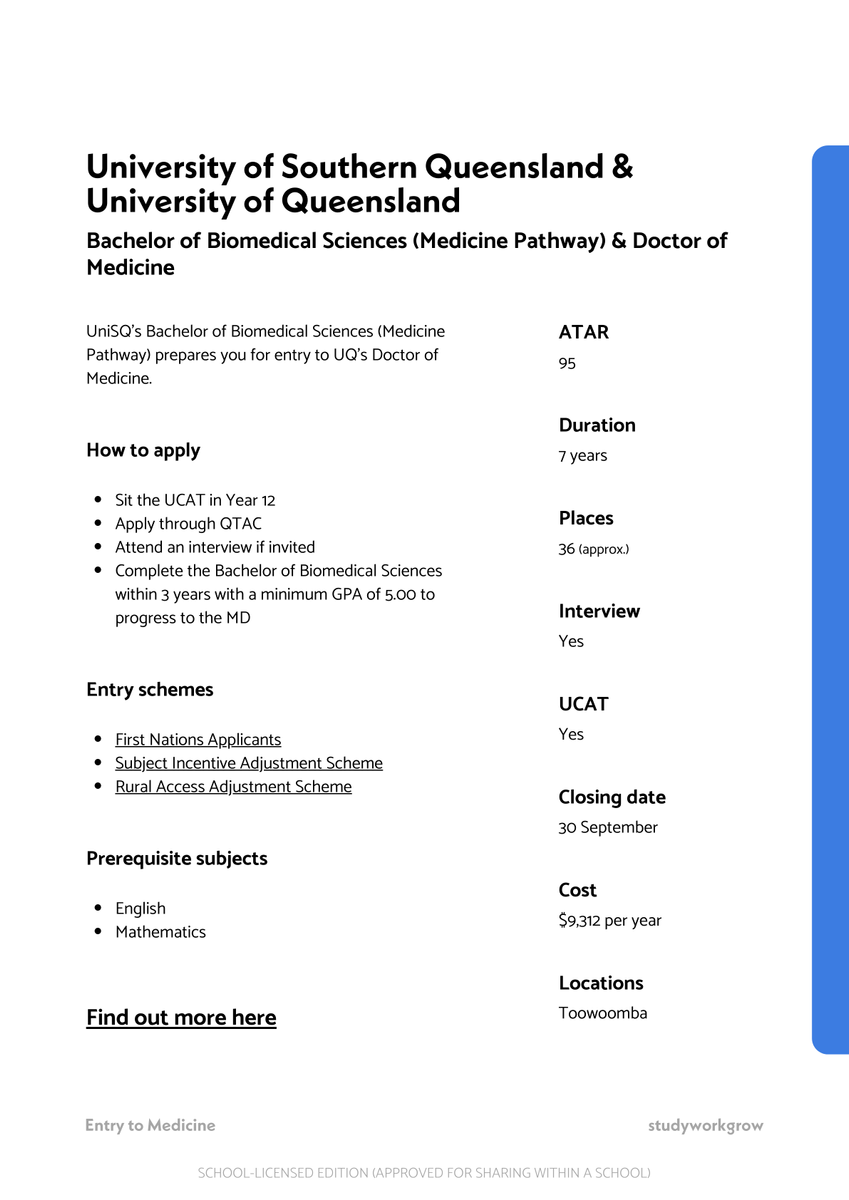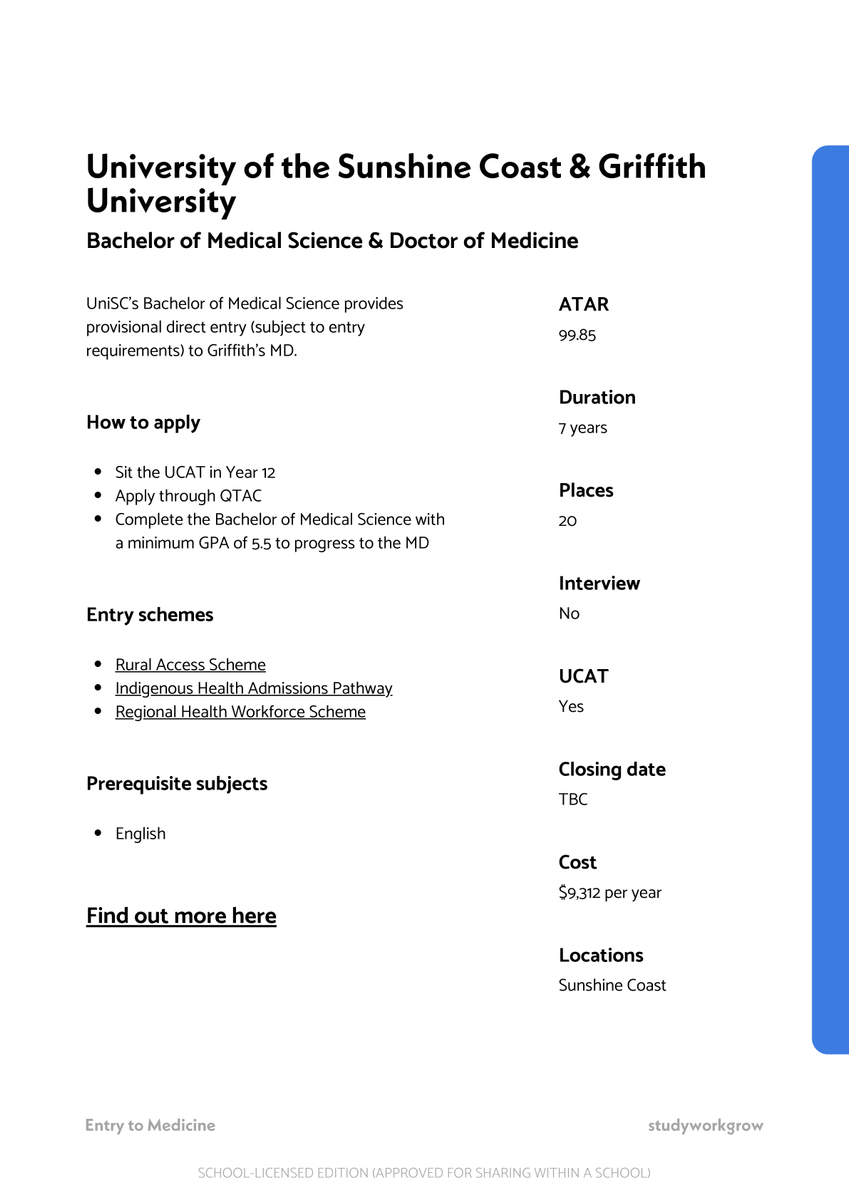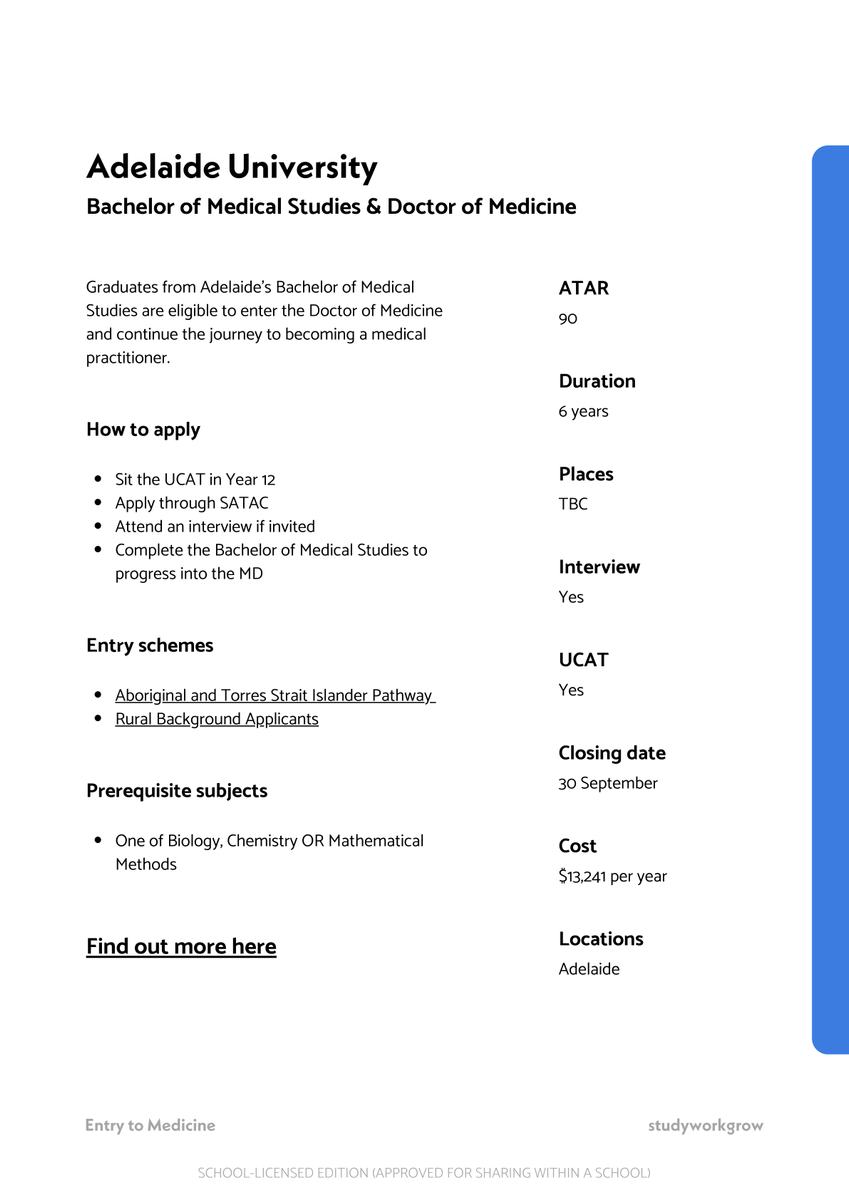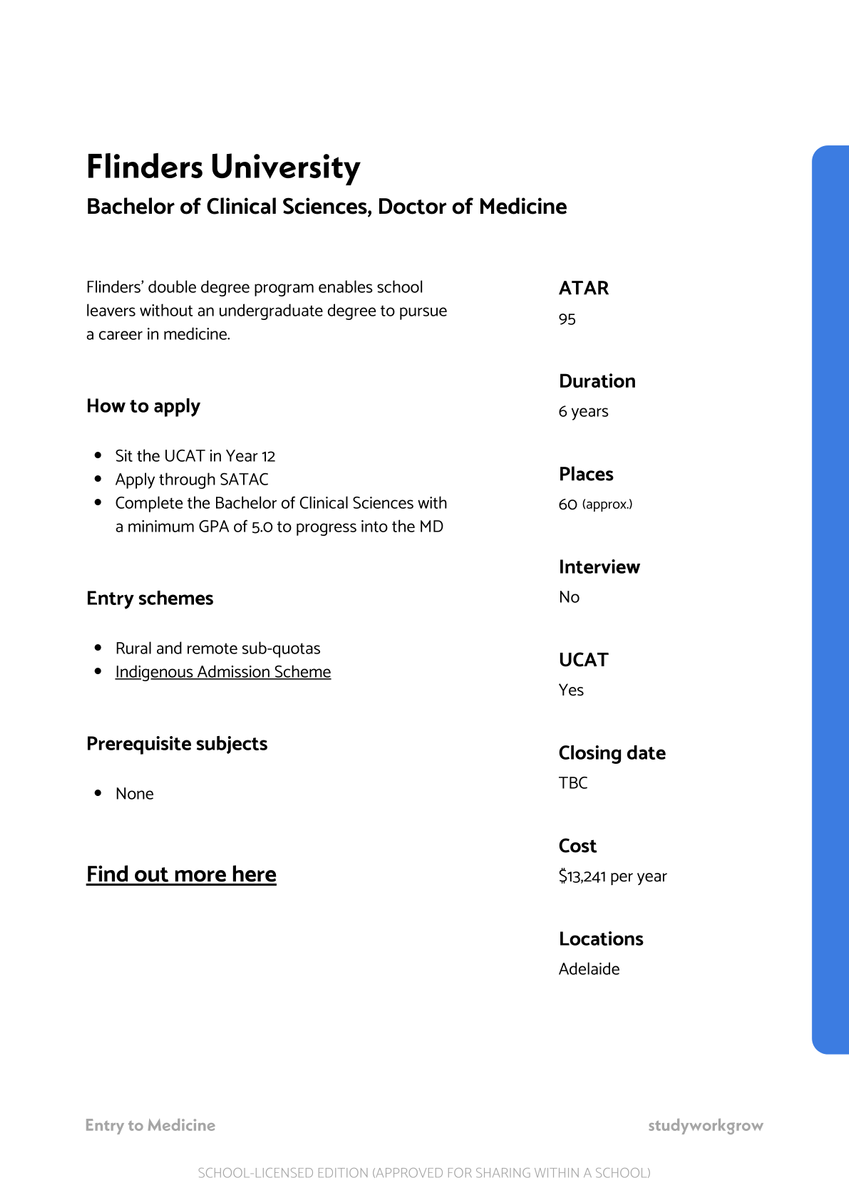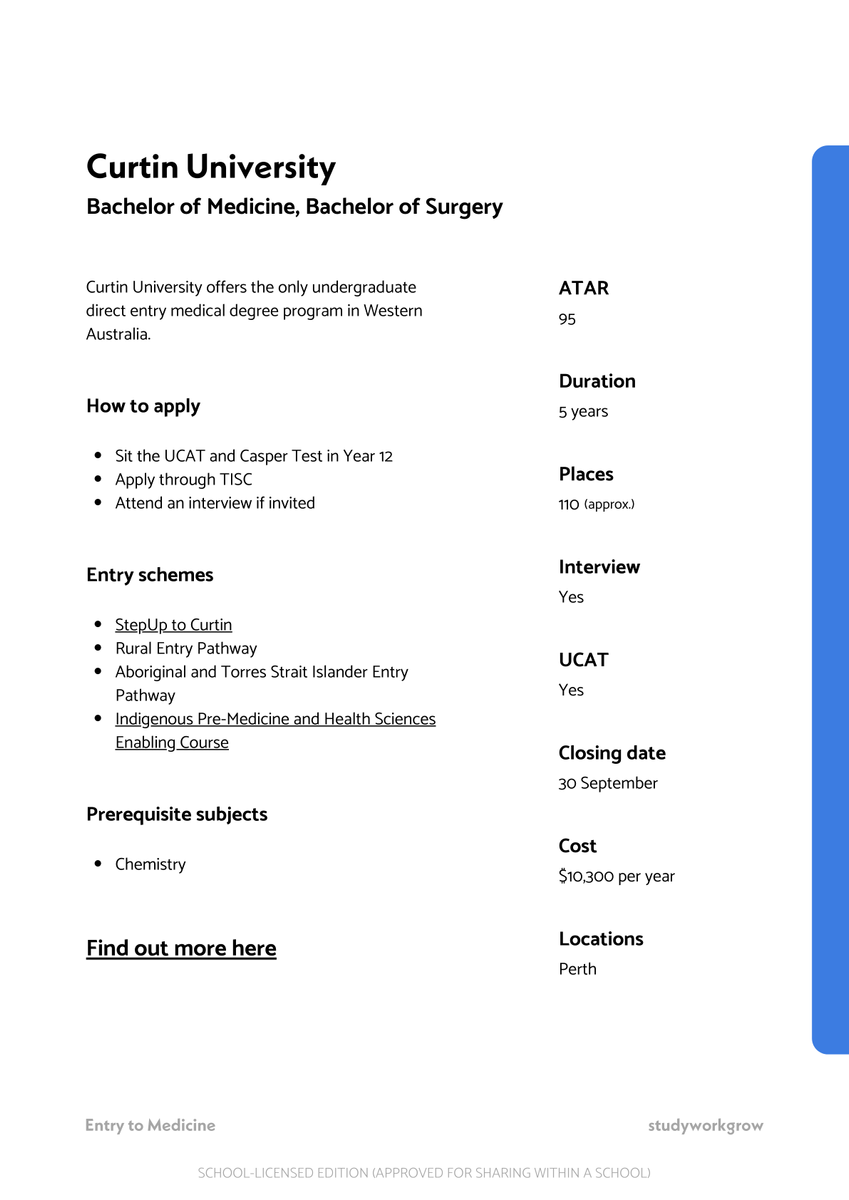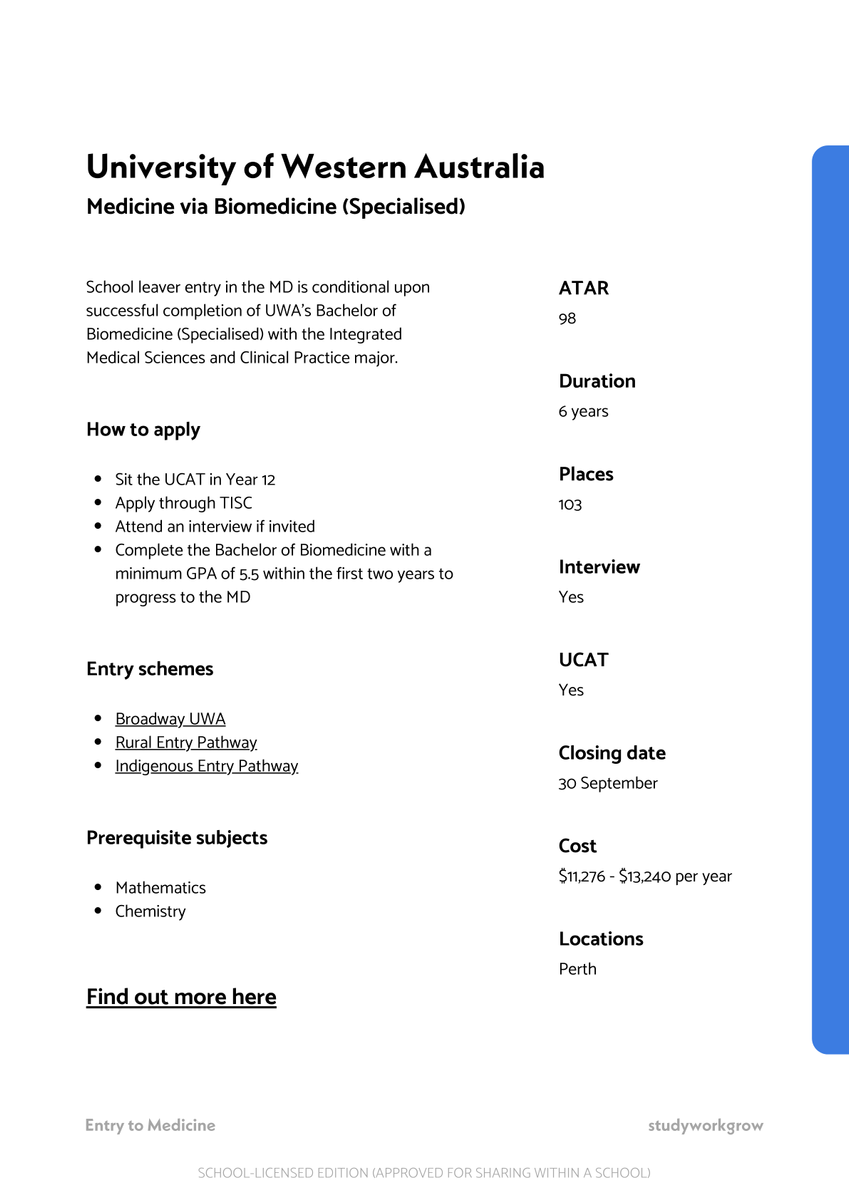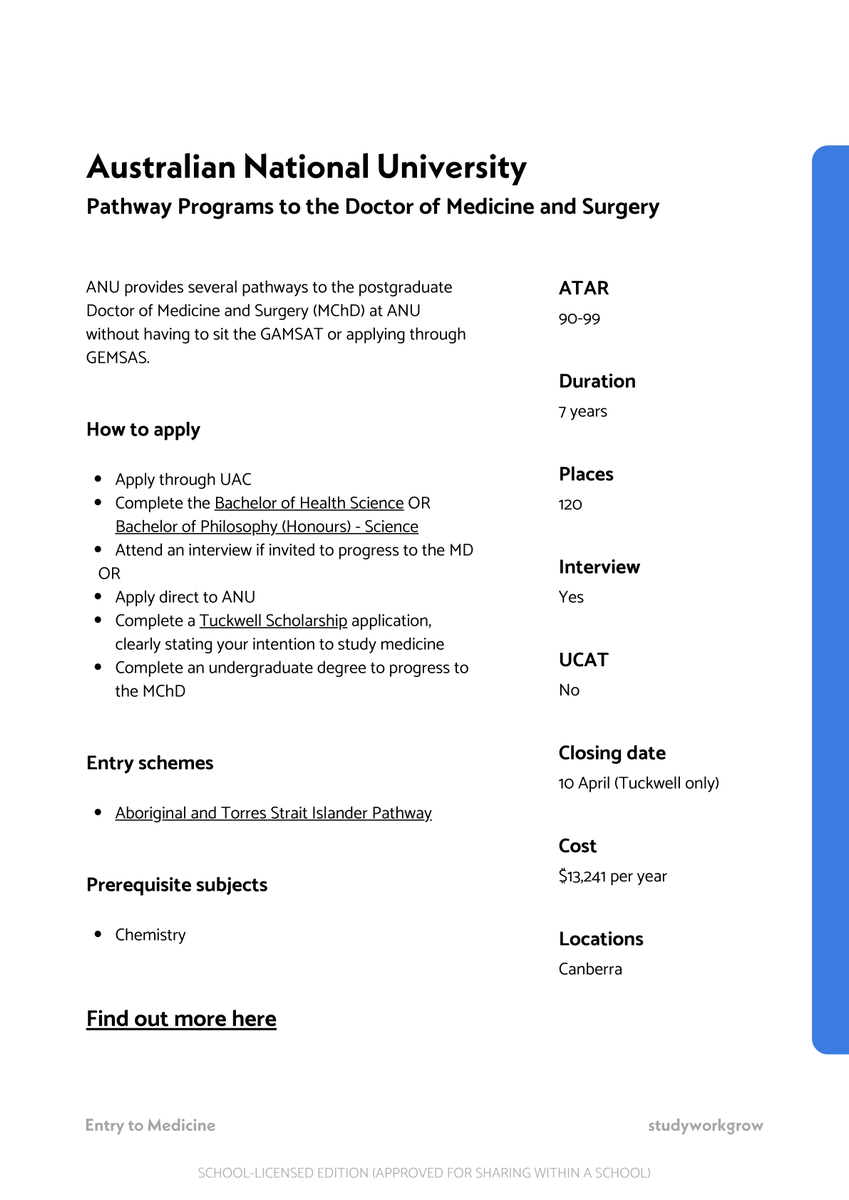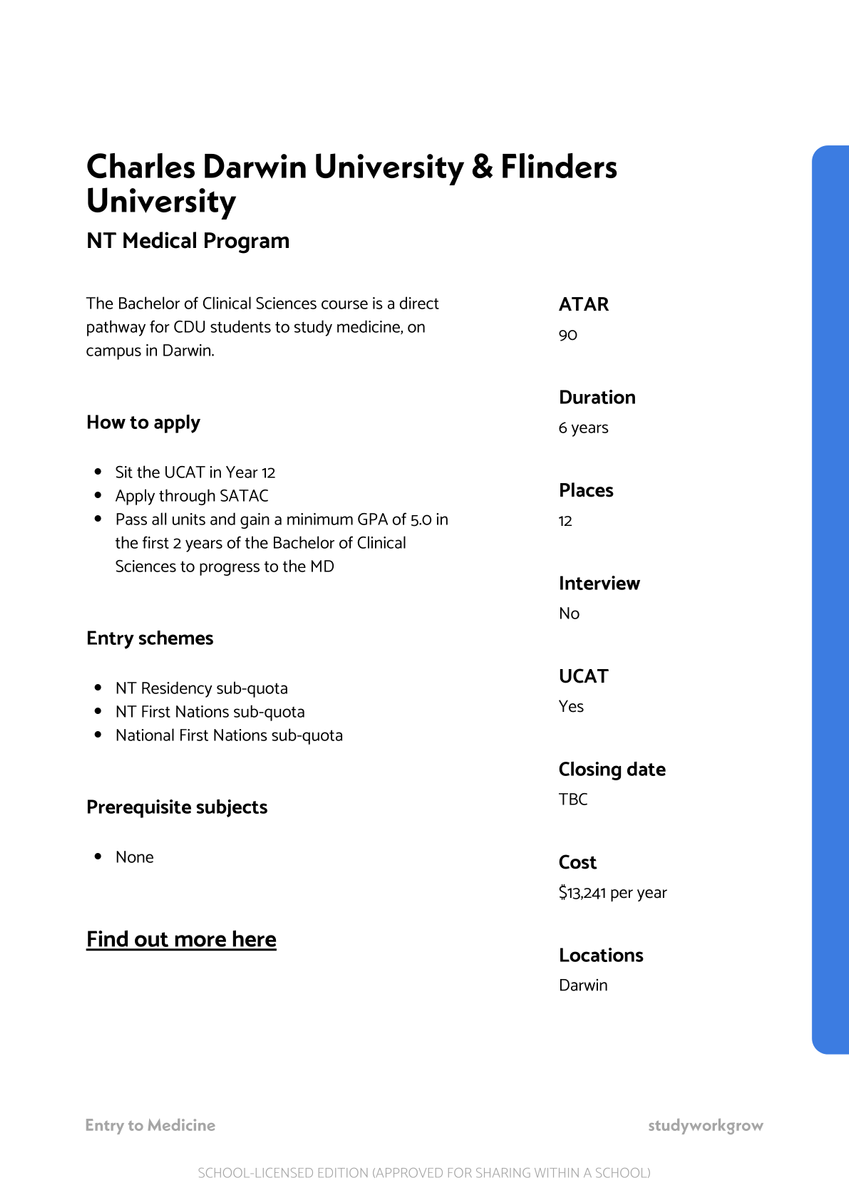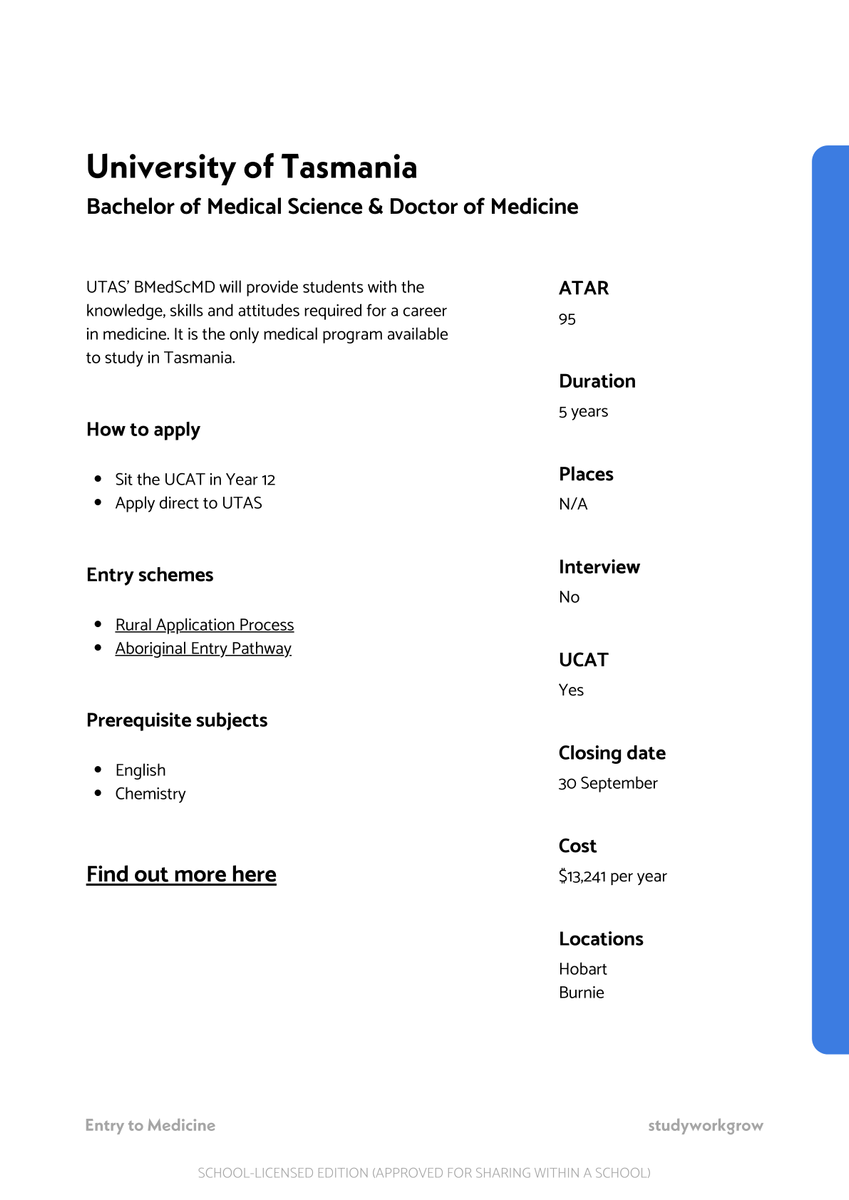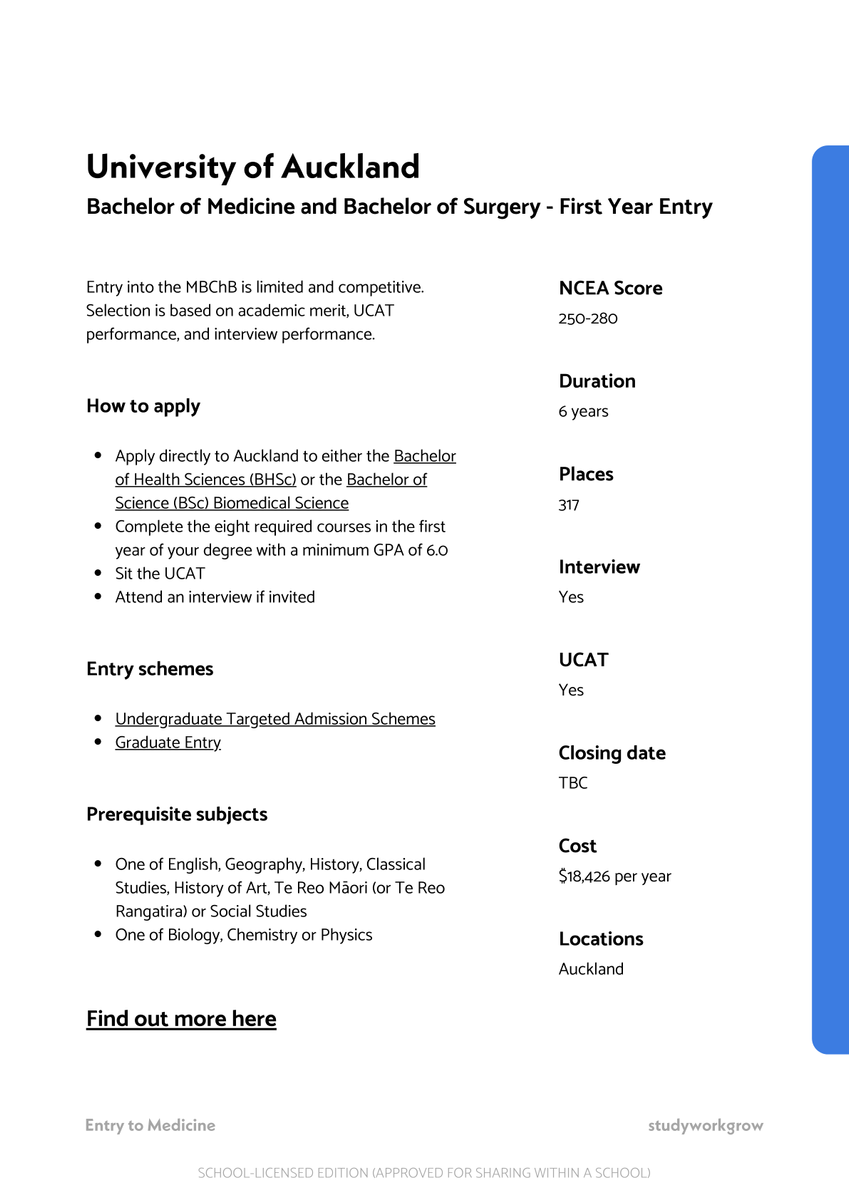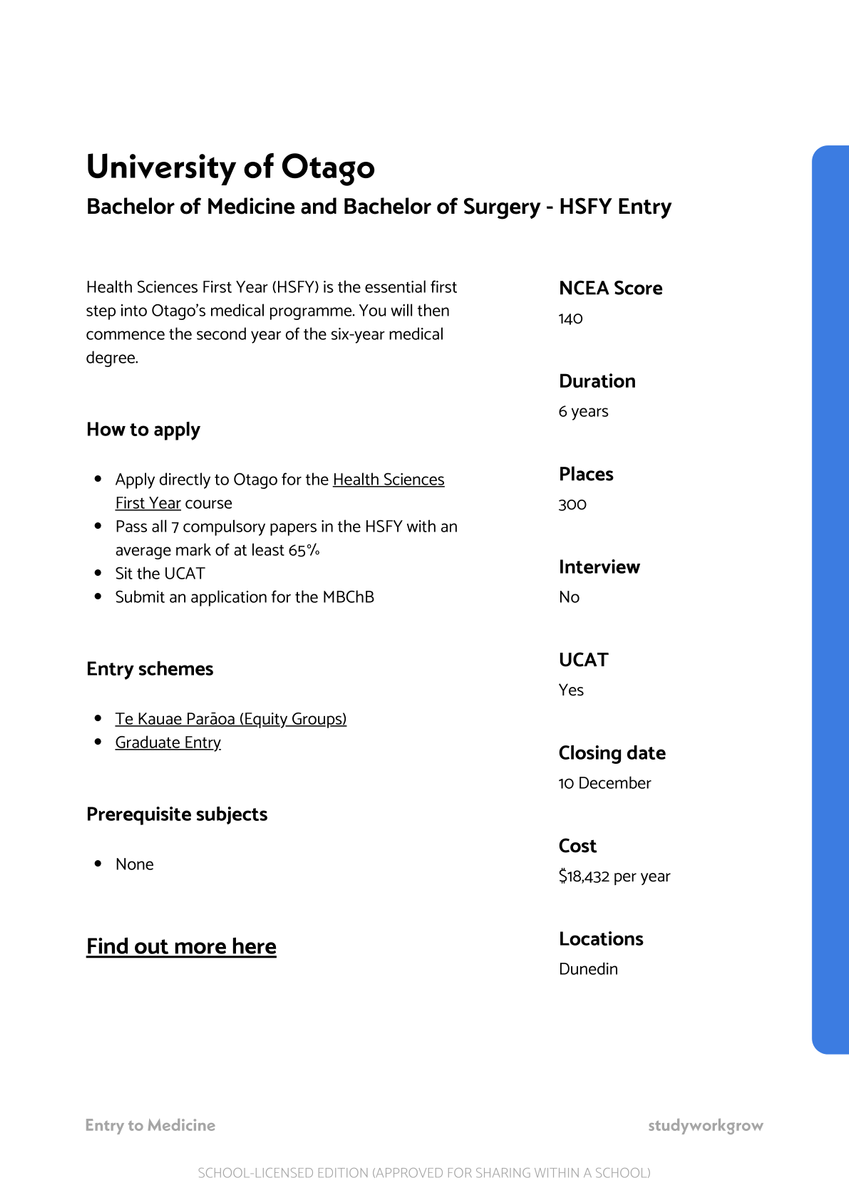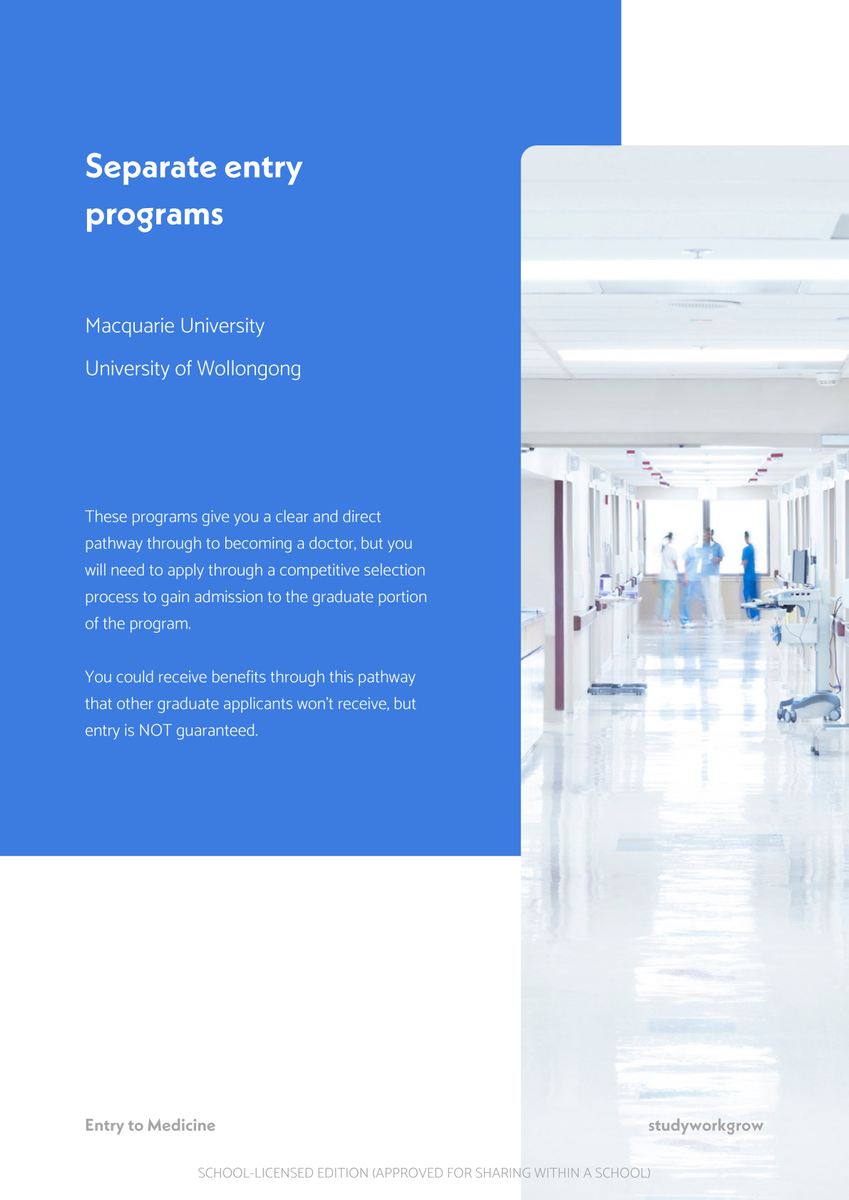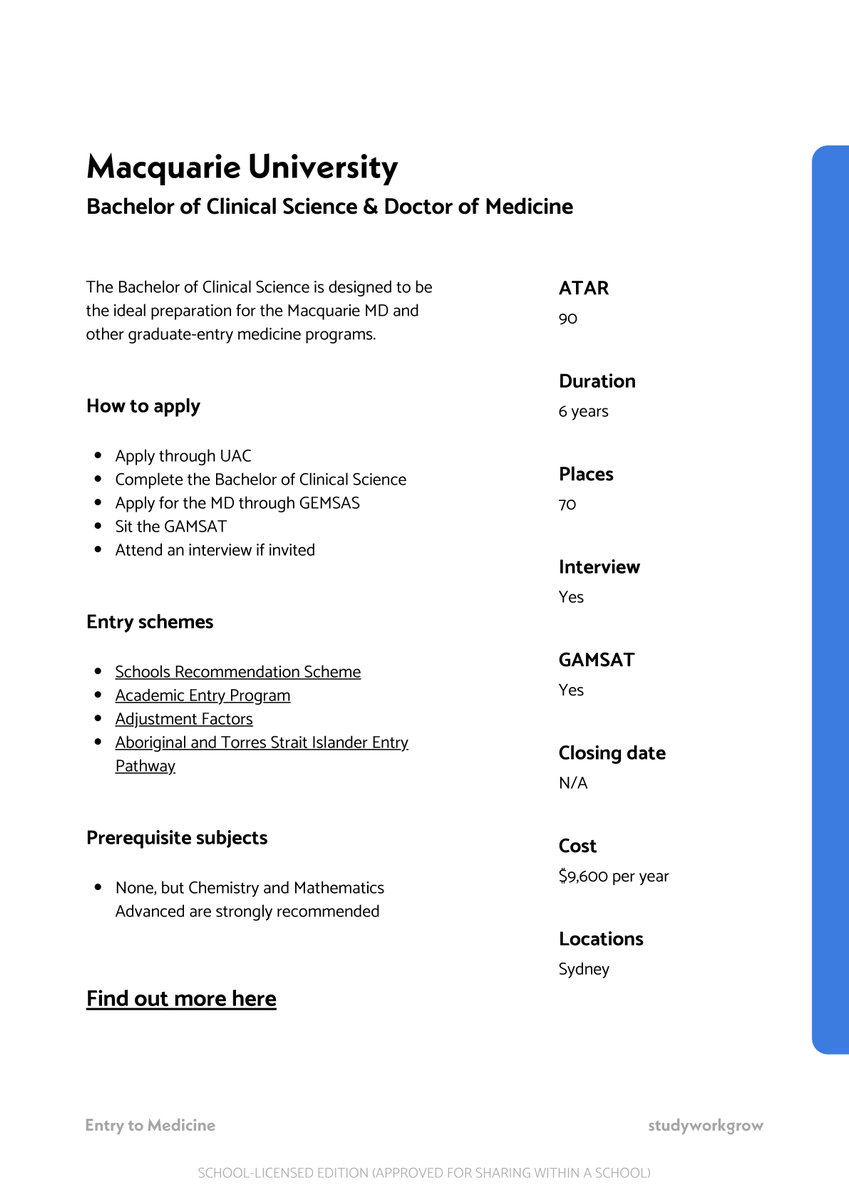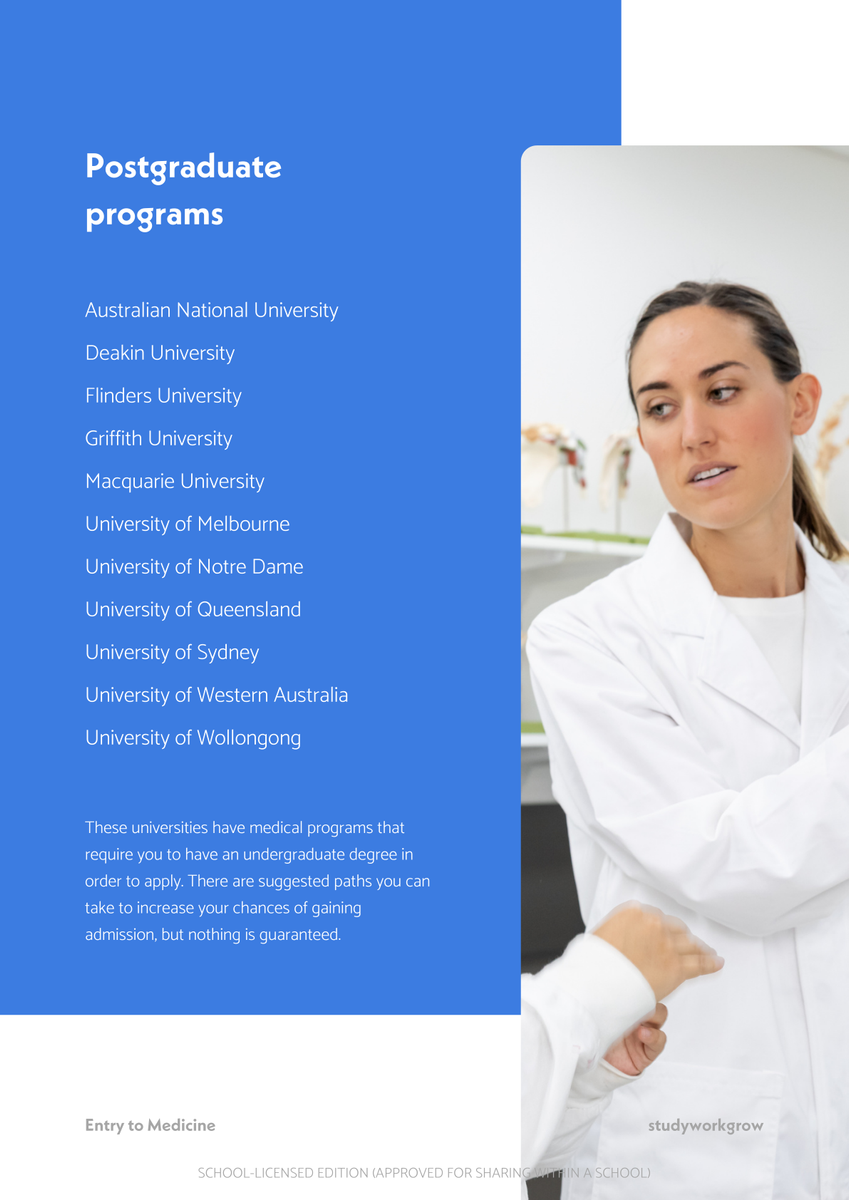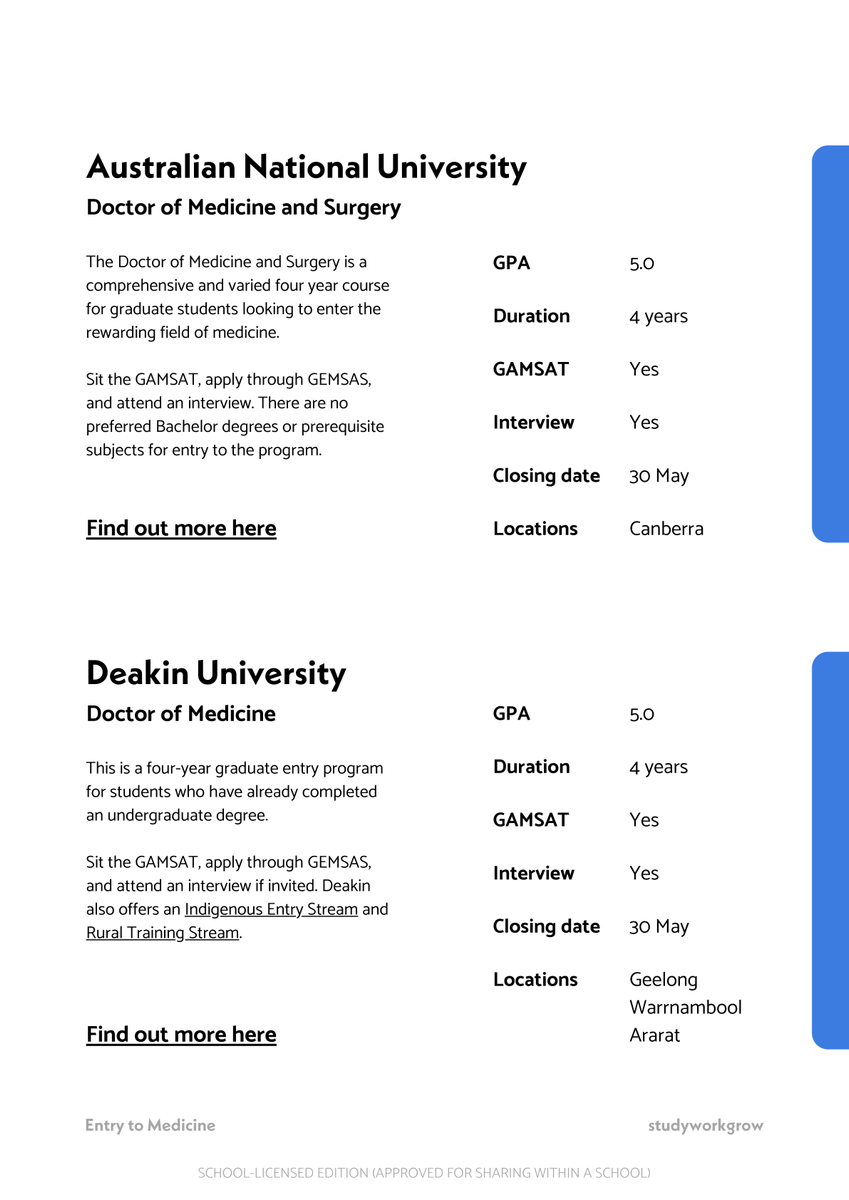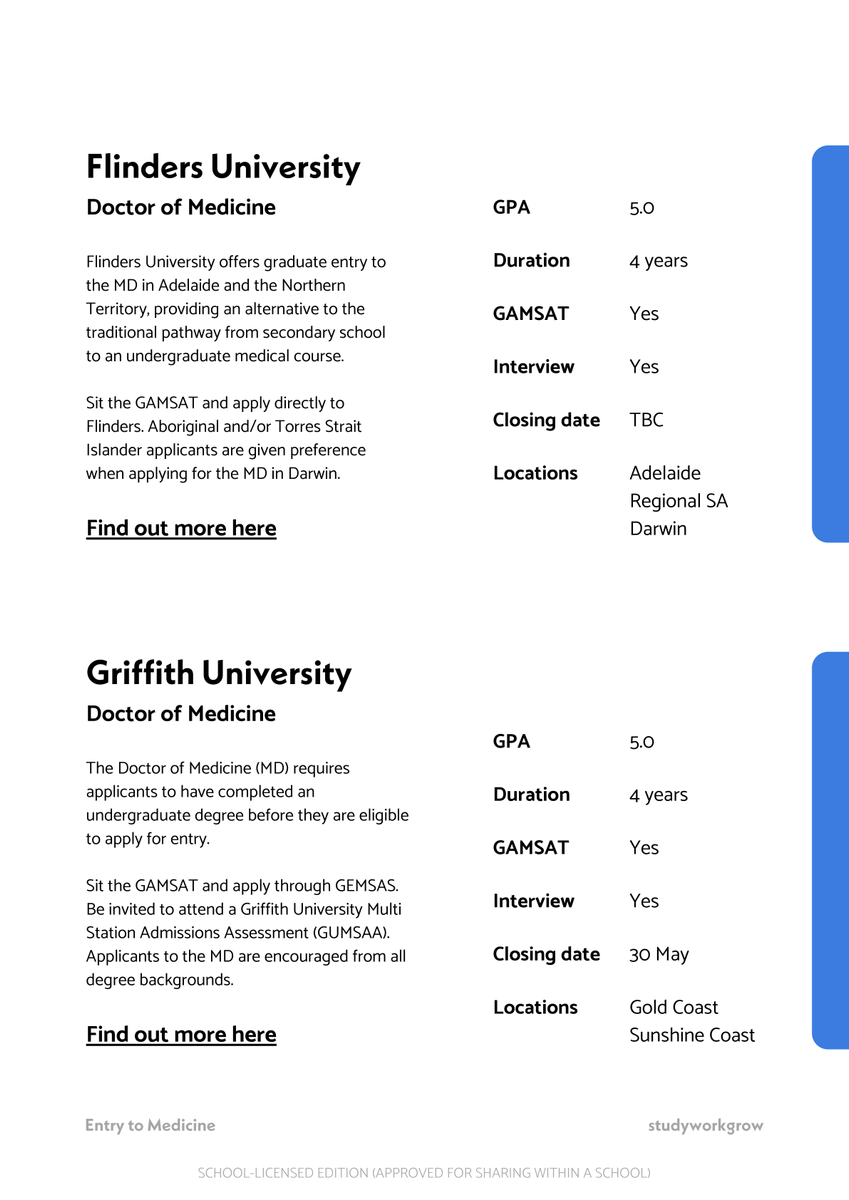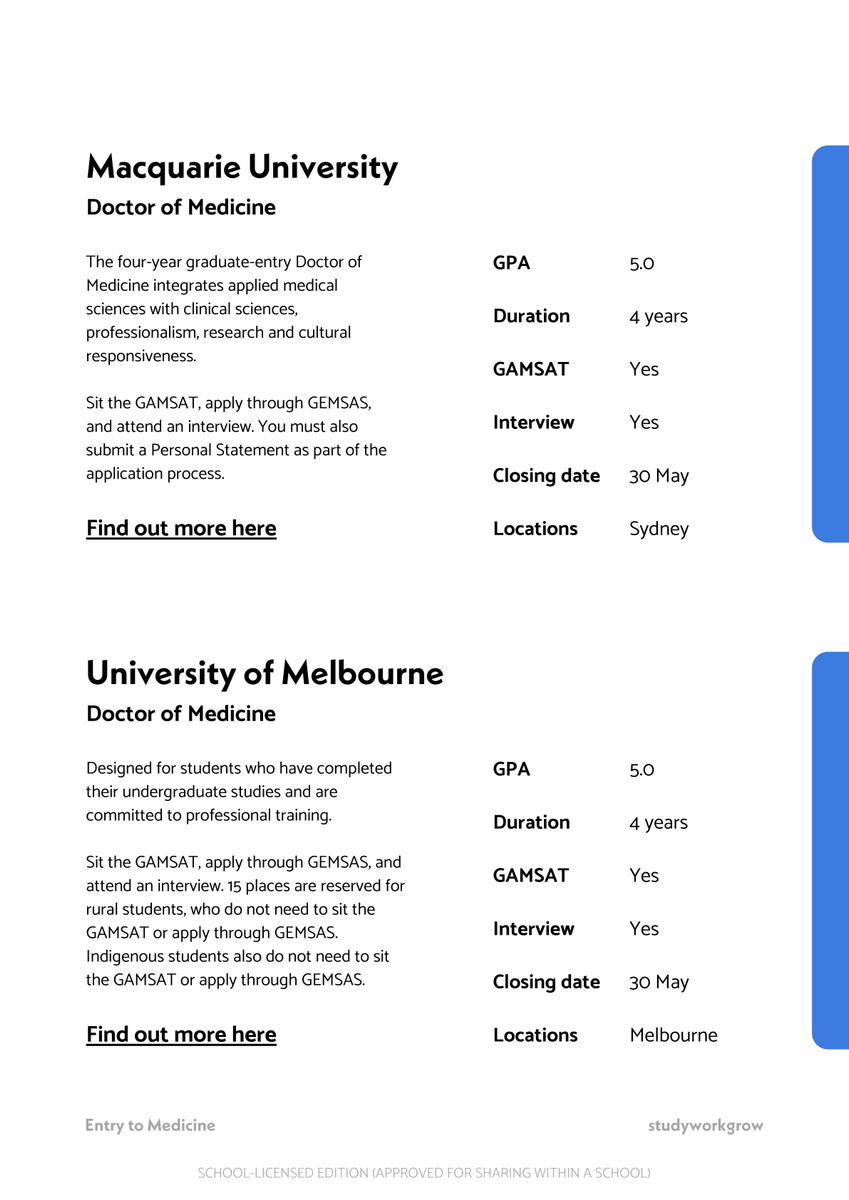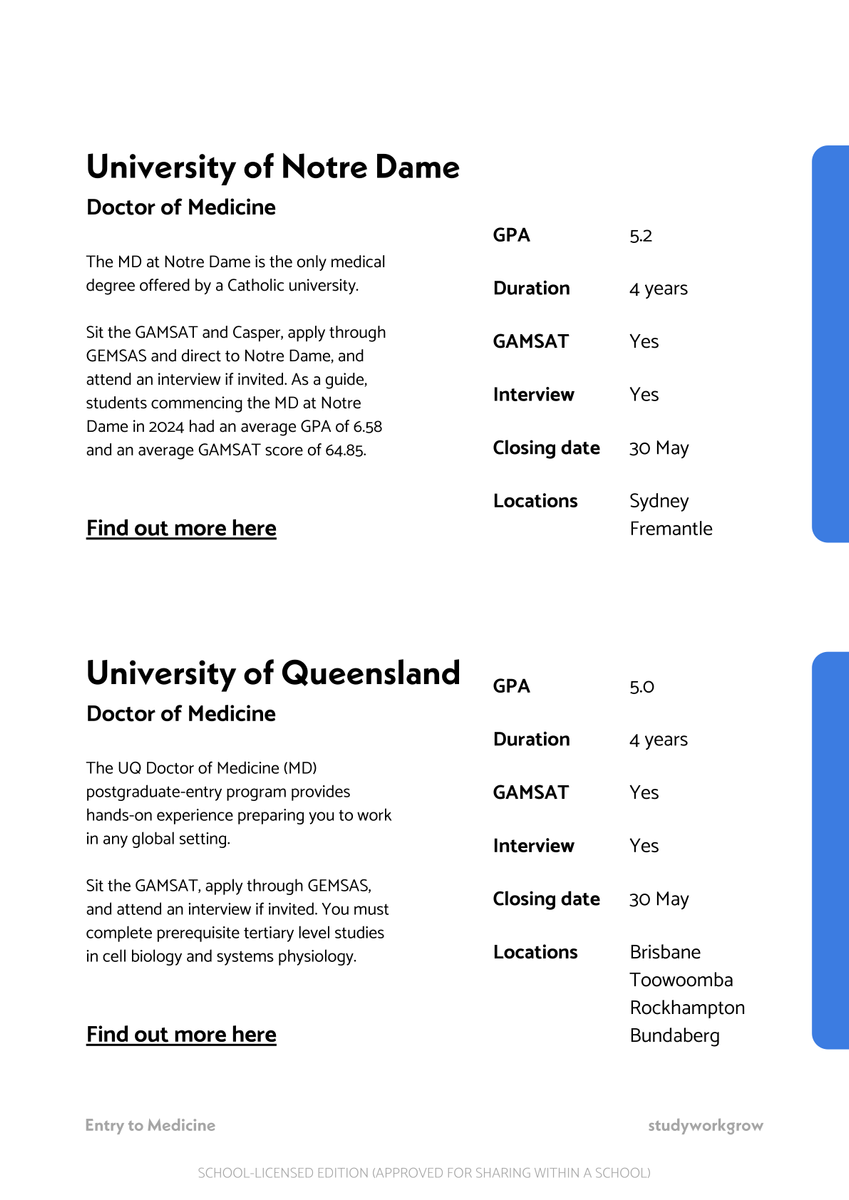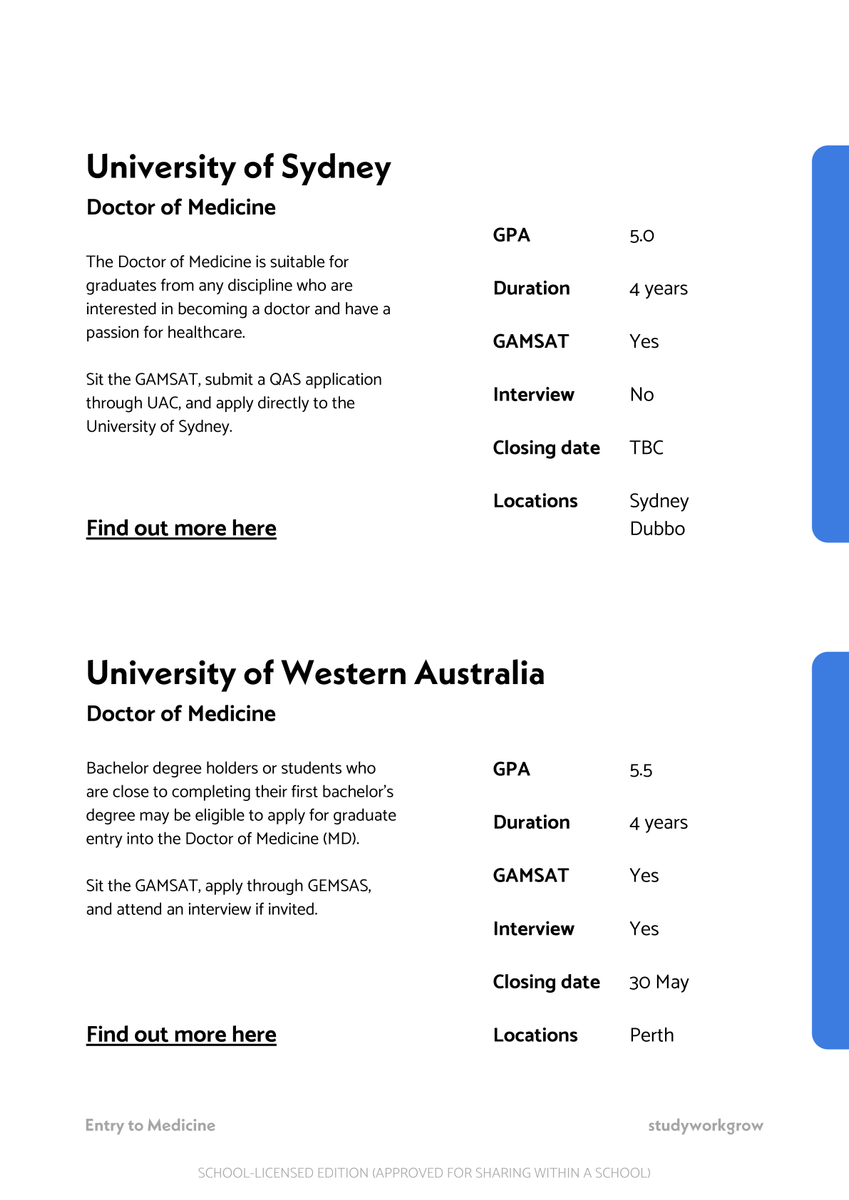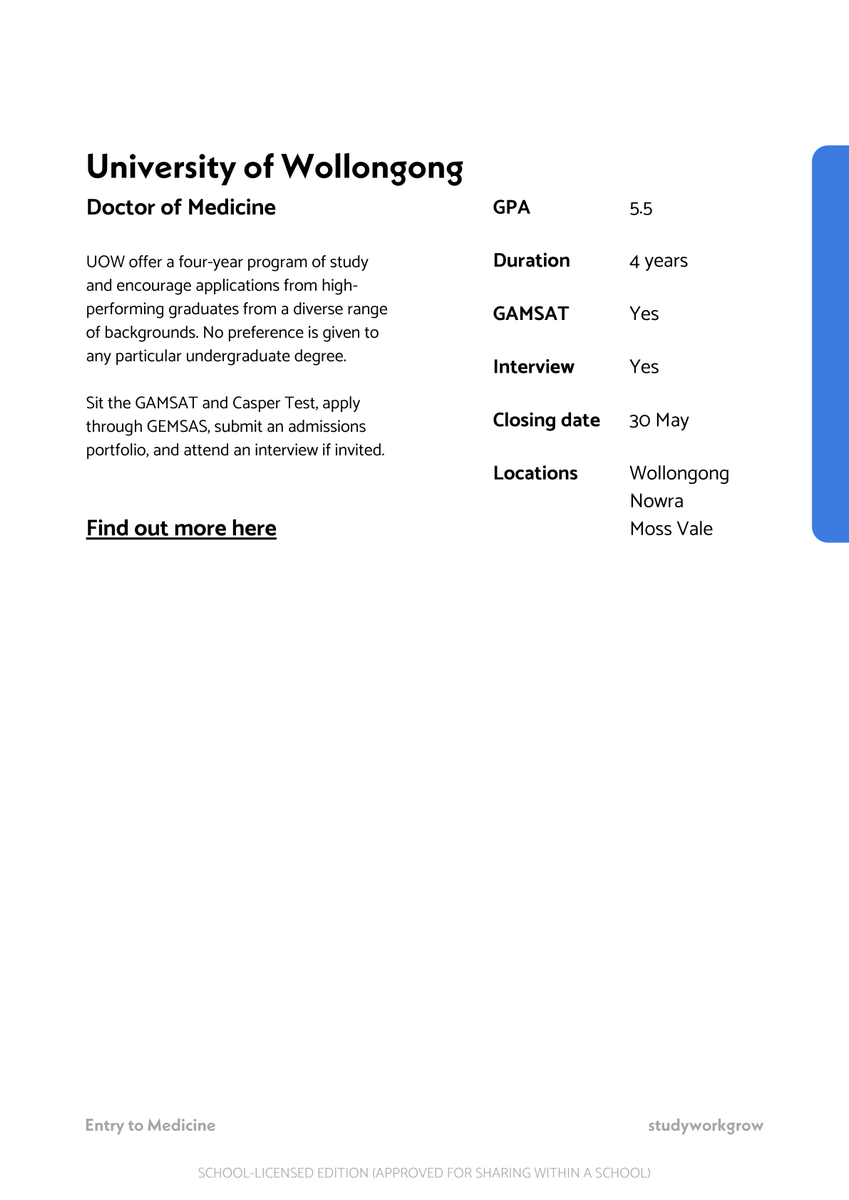Entry in to Medicine

Here is your comprehensive guide (below) as to the steps you need to take in order to gain entry in to medicine.
Planning to study medicine at university?
Dreaming of becoming a doctor? You're not alone; medicine is often seen as one of the world's most respected careers (and typically comes with a nice paycheck too). If you want to study medicine at university, understand that this journey takes years of dedication after high school. But don't worry - with the right preparation, you can make your medical dreams come true.
Medicine is competitive, but totally doable
Yes, medical degrees are known for having high entry requirements and limited spots. Competition is fierce, but don't let that discourage you.
Keep working hard to achieve your best possible grades, and make sure the subjects you've chosen in high school will meet any prerequisites for your preferred courses. And remember, even if your results aren't quite enough to make it into the top programs, you still have options (we'll talk more about this later).
Are you eligible to apply?
Universities often require you to study specific high school subjects to ensure you have the foundation knowledge you'll need for your degree. Common prerequisites include:
- Mathematics (mid-level or higher)
- Chemistry
- Biology
- Physics
If possible, start researching early so you can select the right subjects for senior years. Find specific courses that interest you and tailor your subject choices accordingly.
Don't forget to include some subjects you're passionate about too - these could become your Plan B if things change (which is perfectly OK).
Make your application shine
Amazing grades aren't enough in this competitive field. You'll need to make sure that your extracurricular activities and personal qualities stand out too.
In particular, universities generally look for applicants who:
Show passion and dedication
Excellence both in and outside the classroom shows you can handle a challenging learning journey. While your studies are important, don't neglect extracurricular activities either. Give your all to sports, drama, music, leadership, mentoring, or debating – universities are looking for high achievers in all kinds of fields.
Demonstrate commitment to learning and compassion
As a doctor, you will never stop learning. New drugs, treatments, and illnesses are discovered constantly, so you’ll have to stay on top of it all through ongoing professional development and training. Plus, doctors need to have excellent bedside manner, which means you need to show empathy, care, and compassion.
So how do you develop those skills and show you have them on your application?
- Volunteer for charities, environmental projects, or emergency services
- Get involved in community work or raise money for good causes
- Make a difference, even in small ways, such as tutoring fellow students
Gain relevant experience
Having some experience of the field before university won't just boost your application - it can help confirm if medicine is the right choice for you.
You could try one or more of these options:
- Shadow healthcare professionals in doctor's offices, dentists, hospitals, labs, or pharmacies. You may not be allowed to do much, but observing these people at work will give you plenty of insight and highlight some of the qualities you’ll need to succeed.
- Obtain a First Aid Certificate and work at events where you could put it to good use, or at least watch and assist while other experts do.
- Look at volunteer abroad opportunities where you can get some basic field experience. Projects Abroad are just one company offering this kind of experience for young people.
- Volunteer in rural or remote communities where you could support medical or health programs. Search for these online for the latest information.
- Attend any workshops and programs run by a university's medical school, or even take the initiative and contact them to see if there’s any way you could be involved outside of term time.
Have a great personal statement
Applications can be pretty dry, but your personal statement is your chance to stand out. Take time to perfect this section - edit carefully, respect word limits, and have others review it.
Explain why you're passionate about medicine and highlight the skills and experiences that make you a strong candidate and can help you succeed in your future medical studies. They want to choose good candidates, so tell them why you’re worthy.
Attend information sessions and workshops
Universities and other organisations offer plenty of ways to provide medicine applicants all the information, support, and practical help they need - so take a look at what's available.
Info sessions and open days
Most medical schools host regular information sessions (both in-person and online) for prospective students. They cover application requirements, course structure, and give you a chance to ask questions directly to admissions staff.
Virtual and in-person open days also offer valuable insights into campus life and let you speak with current medical students about their experiences.
Sign up for university newsletters to stay informed about upcoming events or head to their website and see what's on.
Preparation programs
Many universities and private organisations also run a variety of programs for aspiring medical students, such as:
- Admissions test workshops
- Interview preparation sessions
- Hands-on experience days
- Student mentoring and advice
School holiday initiatives
Keep an eye out for school holiday programs where you can:
- Visit anatomy labs and simulation centres
- Learn basic clinical skills like taking blood pressure or giving injections (on fruit)
- Explore different specialties in medicine
- Talk with doctors about their career journeys
The connections you make at these events can be just as valuable as the information you learn.
Learn about required tests
To be eligible to apply for some courses you must have taken any specified aptitude and psychometric tests, such as the University Clinical Aptitude Test. They're designed to help universities select candidates with the “appropriate abilities and professional behaviours” that doctors will need.
Tests like these should generally be completed while you're still at school, before you submit your university applications. So you'll need to find out what to do and be organised well ahead of application time.
Nail your interviews
A lot of universities will be interested in not just your academic and extra-curricular achievements, but your motivation for studying medicine too. Why is it so important to you, and what will you hope to achieve in the future by becoming a doctor? These are definitely things worth thinking about before you go into your interview.
If your application impresses, interviews are your final hurdle. Everyone gets nervous, so preparation is key:
- Get lots of practice ahead of time - ask parents or friends to help you out by asking you relevant questions
- Use mock interview resources
- Find previous example questions and rehearse your responses
- Know the type of interview you’ll be going into - this could be:
- Multiple Mini Interview (MMI): You will go to different stations, read a prompt, and then respond appropriately.
- Semi-structured interviews: A more traditional style of interview, where you’ll be in a room with 2 or 3 interviewers who will ask you questions about you, your education, and why you’d like to be a doctor.
- Unstructured interviews: Slightly less common, these are a more informal group-style interview to gauge your personality and how you get on in a group setting.
- Prepare a few of your own thoughtful questions to ask
No matter what format your interview is, be ready to discuss your motivation for studying medicine and your future goals as a doctor.
Get your finances in order
Unfortunately, the rumours are true - studying medicine is expensive. The costs might seem daunting at first, but don't panic. There are plenty of options available to help make your goal a reality. You can start preparing by:
- Researching course costs
- Looking into subsidised places
- Applying for scholarships
- Learning about loans you may be eligible for and how and when to pay them back
- Searching for government assistance that might be available and checking if you're eligible
- Finding a part time job or starting that entrepreneurial gig and saving for your degree
- Creating a budget to help reduce your overall costs
Have a backup plan
While confidence is good, having alternatives is even better. What if you don't get into your chosen university? What if something unexpected affects your results? What if you change your mind? What is your Plan B?
If you don’t already have one, it’s probably time to start planning. For starters, look at applying to more than one university – yes that means extra work, but it could also save you stress later in the year.
For some perspective on the importance of having a backup plan:
- In the UK in 2025, there were 7,600 total places available to study medicine, yet there were 23,350 applications made.
- In Australia in 2025, the University of New South Wales received 1,607 first preference applications for their medical program, but only have 198 places available - which means at least 1,409 people missed out.
- According to Gyanberry, the average admission rate for medical school programs in Australia is around 30%, meaning that only one in three applicants will be accepted - and that rate can be even lower at the most selective institutions.
Remember though, there are also alternative pathways into medicine. You could:
- Complete an undergraduate degree and use it to apply for a postgraduate medical course
- Look into related degrees like biomedical science or medical engineering
Even consider a Plan C – if you don’t end up studying medicine, what other careers would interest you?
Follow your dreams
No matter what you choose to study, the main thing is to do something you enjoy. You’re likely to be working for the next 40 to 50 years of your life – so you might as well create a career you love.
If it is medicine, then with some hard work and determination, you could find yourself studying to be a doctor before you know it.
If you’d like more help, grab a copy of our Entry to Medicine Guide below. It covers all aspects of applying, including lists of courses, how to prepare your application, and the options to consider.
